

SPECIAL FEATURE « WE NURTURE THE FUTURE –AN IMPACTFUL STRATEGY »
4 ROOTS AND BRANCHES: THE 2025–2029 STRATEGIC PLAN
HEC Liège’s priorities and ambitions: insights from Wilfried Niessen, General Director & Dean
6 AN IMPACTFUL STRATEGY: HEC LIÈGE AS A GROWTH LEVER FOR ITS REGION Measuring Impact, Translating Strategy
7 EDUCATION – CREATOR OF TALENT AND IMPACT: EDUCATING TO TRANSFORM Training Agents of Change
• Strategic Objectives for Education
• HEC Liège, an Open and International Campus
• Bernard Fortz, Vice-Dean for Education
15 RESEARCH – CREATOR
• Research within the 2025–2029 Strategic
• Georges Hübner, Vice-Dean for
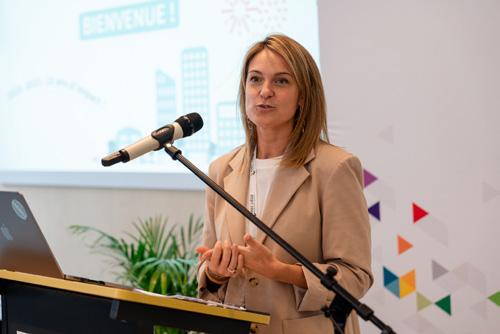
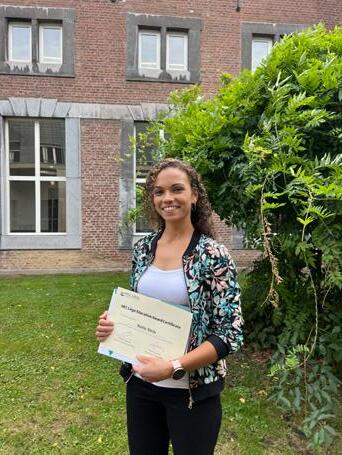
SERVICE & CITIZENSHIP – CREATOR OF CONNECTIONS AND OPPORTUNITIES: CONNECTING TO ENGAGE
• The Group for HEC Liège: Collective Engagement as a Strategic Lever
• HEC Liège and Its Partners: An Ecosystem in Action
• The Art of Entrepreneurship by HEC Liège Alumni: Create, Succeed, Impact
• Rethinking Executive Education to Meet Today’s and Tomorrow’s Needs
• Leadership Executive Forum: A New Platform to Reflect on and Practice Leadership 30 THE TRANSVERSAL AXES: THE LIFEBLOOD OF THE STRATEGIC PLAN
• Digital & Analytics Axis: Responsible Digital Transformation as a Driver of Change
• Entrepreneurship & Innovation Axis: Planting the Seeds of Audacity and Growing the Entrepreneurial Spirit
• Sustainability & Transitions Axis: The S’LAB – HEC Liège’s Cross-Cutting Platform on Social and Environmental Transition
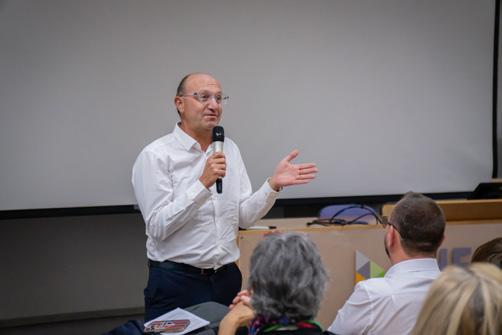
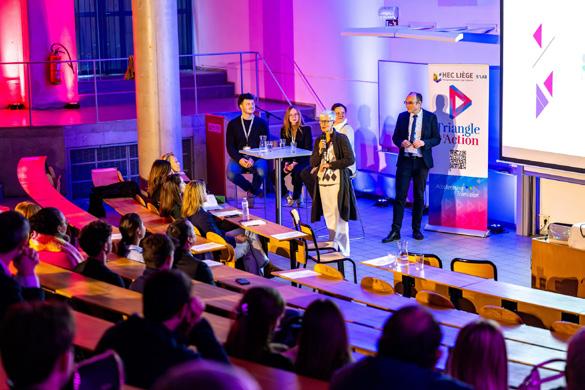
Spirit of Management
Magazine published by HEC Management School
University of Liège
14, rue Louvrex - B - 4000 Liège www.hec.uliege.be
Published by Wilfried Niessen
Directeur général et Doyen 14, rue Louvrex - B - 4000 Liège
Chief editor Nathalie Hosay
Head of Communication and External Affairs
Phone: + 32 477 625 966 nathalie.hosay@uliege.be
Involved in preparing the articles for this issue
Sandra Delforge, Bruno Gemenne, Anne Gillet, Nathalie Hosay, Georges Hübner, Charlotte Maron, Natacha Mathy, Nicolas Neysen, Wilfried Niessen, Frédéric Ooms, Michaël Parmentier, Sylvie-Anne Piette, Jean-Louis Pire, Marianne Snakers, Bernard Surlemont, Aurore Tilkin, Roxanne Thonnard Graphics Studio Debie www.debie.com
Printed by Snel Grafics
Cover photo Nathalie Hosay
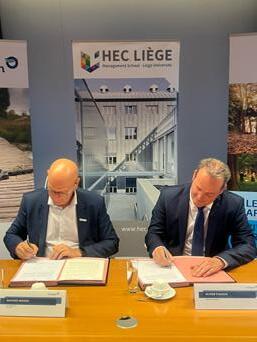


linkedin/hec-liege instagram.com/hec-liege facebook.com/HECLiege tiktok.com/HECLiege
Membre de WE MEDIA Publishers’ Association
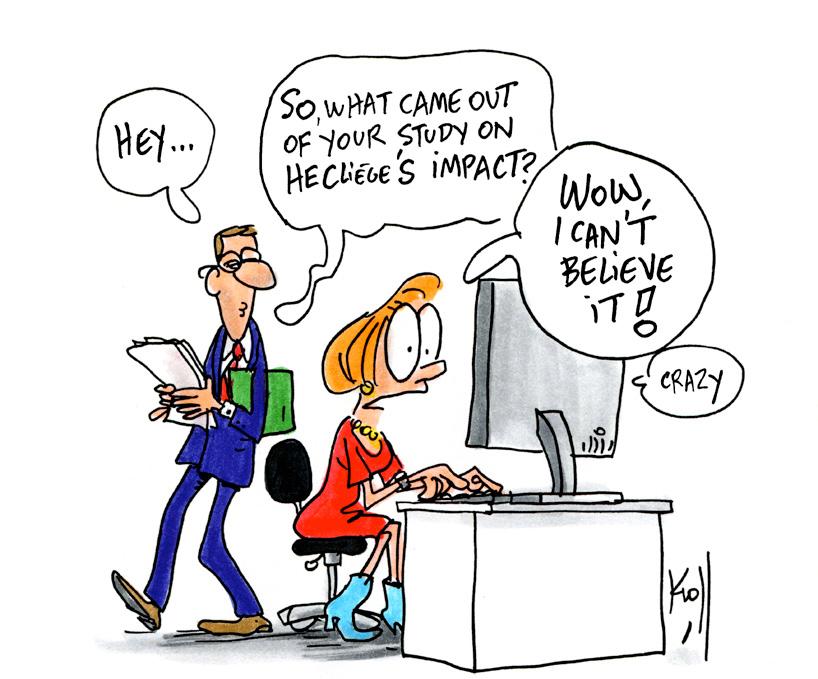
Dear Readers,
The world around us is changing at an unprecedented pace. We live in a BANI world – brittle, anxious, non-linear, and often incomprehensible – where uncertainty, polarization, and technological upheavals (not least AI) coexist with pressing sustainability challenges.
In such a context, having a clear compass to understand how HEC Liège positions itself and envisions the years ahead is more important than ever. Together with all our stakeholders, we have developed the 2025–2029 Strategic Plan.
Building on the foundations of the 2019–2024 plan, we have reflected on our purpose and projected ourselves into the future with a renewed vision. Our roots are deep and strong: a robust academic culture, a unique entrepreneurial spirit, openness to the world, and a united and committed community. These have been the cornerstones of our School for more than 125 years.
We are actively shaping the future by training talents, creating knowledge, and developing sustainable solutions for our region, while further strengthening our international outreach.
In this issue of SPIRIT, we take a closer look at how this vision is translated into action through the new plan and the initiatives already underway.
We recently welcomed our new students with a three-day “Welcome Sprint” – an immersive experience made possible thanks to the dedication of our colleagues and partners. Our goal is to support and nurture all learners in our programmes, whether full-time, part-time, or lifelong learners, in Liège and beyond.
Our slogan, “We nurture the future,” perfectly captures our ambition: to cultivate the desire to learn, to foster critical thinking, and to prepare our community for the challenges of tomorrow.
To achieve this, we are building on the achievements of the previous plan – a new campus, expanded internationalization, the recruitment of new colleagues, and stronger ties with our stakeholders – while integrating societal transformation across all dimensions of HEC Liège through our three transversal axes: Digital & Analytics (data, AI, process transformation) ; Sustainability & Transitions (climate change, circular economy, green IT), and Entrepreneurship & Innovation (new business models, entrepreneurial engagement).
As you will see, HEC Liège continues to act as a catalyst for sustainable solutions and a key economic player in societal transformations, making a meaningful impact on the development of its region while radiating internationally.
I wish you an enjoyable read – and, above all, a successful start to this new academic year!
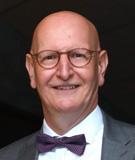
Wilfried Niessen Director General & Dean
ROOTS AND BRANCHES
HEC Liège’s priorities and ambitions

Faced with these challenges, we must restore confidence in our youth and offer them tools and a systemic vision to imagine a sustainable future. Society, organizations, and institutions need individuals capable of imagining concrete and sustainable solutions, transforming them into ambitious projects while managing the transitions and changes from one world to another.
On a more local scale, this means that our region must commit to training and attracting talents capable of adapting, innovating, and leading with a clear understanding of the issues at stake.
It is in this context that HEC Liège, with its long and rich history and its strengths – cutting-edge research, a transdisciplinary mindset, an entrepreneurial and innovative spirit, and a strong focus on soft skills and personal development – is working to train and attract talents able to innovate, guide transitions, and build a more resilient future.
This ambition structures its development.
To make this ambition a reality, HEC Liège has adopted the 20252029 Strategic Plan, the result of collective reflection involving all its stakeholders, combining transversal initiatives and targeted actions within its three fundamental pillars: Education, Research, and Service & Citizenship.
We took the opportunity, together with Frédéric Van Vlodorp, Director of Information, Communication, and Marketing at AKT CCI Liège - Verviers - Namur, to interview Wilfried Niessen, General Director and Dean, to analyze the School’s priorities and ambitions for the coming years. Between regional anchoring, international outreach, and strengthened collaborations with the economic world, this plan proves to be both inspiring and ambitious.
In 2020, the health crisis plunged our societies into uncertainty and disrupted our daily behaviors. Since then, geopolitical volatility, the questioning of globalization, international competition, and increasingly polarized current events have shaped our daily lives. These changes reveal major new challenges: sustainability, digital transition, governance, and social justice.
Insights from Wilfried Niessen, Director General & Dean
Wilfried Niessen, how does HEC Liège’s new strategic plan strengthen links with companies?
The new strategic plan reinforces the School’s purpose, since its creation in 1896-1898: preparing young people to enter companies and meet their needs for talent. It also strengthens our role of supporting professionals through our executive education programmes, and relies on research and innovation to anticipate the evolution of the economic world and prepare the future of our region, where our impact is significant.
Did you know, for example, as highlighted in the introduction of this issue of SPIRIT, that our students provide some 320,000 hours of free work every year in companies through internships and practical experiences? That is a tremendous workforce – a considerable contribution to the regional economic fabric!
Beyond this purpose, what are the main pillars of your new strategic plan?
Our university mission is based on three fundamental pillars: Education, Research, and Service & Citizenship. To these foundations, we add a transversal approach to address the major transitions underway and ahead: digital and analytical transformations and the rise of artificial intelligence, the evolution of entrepreneurial models and innovation, as well as challenges related to energy and sustainability. The goal? To enable students to grasp and understand the complexity of the world and to evolve within it...
More than ever, HEC Liège wants to place transitions at the heart of its priorities, and to contribute actively to the economic, social, and sustainable transition of the region.
What are your international ambitions?
While remaining deeply anchored in our territory, we want to amplify our international outreach. We will therefore be even more ambassadors – after all, “Liège” is in our name!
We want to sustain our establishments abroad. For example, we are the first and only business school in the French-speaking Community of Belgium to organize a Master’s programme abroad, namely in Kinshasa and Casablanca, in addition to our presence in Asia.
Our double accreditation (EQUIS and AACSB), unique in the Wallonia-Brussels Federation, serve as a genuine international passport for our students. It is also an asset to attract new professors and researchers, both Belgian and international.
How does this strategy translate concretely into programmes?
For all our programmes, whether Bachelor’s or Master’s, full-time or part-time, we have developed a transversal model structured around three dimensions: “to be, to act, to change”, which structures the projects and action plans in education, research, and service & citizenship, emphasizing their closely interrelated components of life skills, know-how, and commitment. We want to train individuals capable of developing their human competences (soft skills), mastering the tools and technical know-how to act and s...
We add digital tools that allow students to differentiate themselves depending on their chosen path. This is, for example, the purpose of the Student Journal initiative, which you will discover in the following Education section.
The year 2025 is “The Art of Entrepreneurship” year at HEC Liège. How does the School develop the entrepreneurial spirit of its students?
Our students manage a wide range of the School’s activities themselves: the cafeteria, sports events, welcoming international students, reproducing syllabi, … These responsibilities enable them to fund projects and events, but above all to acquire valuable competences while strengthening the spirit of community. These experiences are also recognized in their curriculum.
This approach is fully in line with our strategy, as is the integration of our core values. For example, with 80 nationalities represented at HEC, inclusivity plays an essential role in enabling students to learn to live and collaborate with people from different cultures.
How do you connect HEC Liège’s governance to the economic world?
As I said before: our links with companies are historical and part of our DNA. We are committed to cultivating them every day. We are the only university faculty to include representatives from the business world in our governance bodies. This strongly distinguishes us from other business schools, which often operate privately and in parallel to universities, as in France, for example. In Liège, we combine the expertise of a specialized school with the academic richness of a full university.
HEC Liège also benefits from the support of the Groupe pour HEC Liège, which currently brings together 150 partner companies. The Group challenges us and pushes us to adapt to real-world needs. It serves as a true laboratory of ideas and dialogue, connecting students, academics, and economic decision-makers.
Do you have concrete examples of this interaction?
Yes, for example, 92% of our scientific publications are now popularized to inspire business managers. The launch of PULSE, the HEC Liège research podcast, clearly illustrates our desire to connect the academic and business worlds. Another example: we created the VentureLab, a student incubator that, in ten years (we celebrated this anniversary last April with a very successful Festival of Entrepreneurial Metamorphoses), has contributed to the creation of companies generating more than 1,000 jobs.
Every year, more than 300 business leaders intervene in courses, offering a direct link between theory and practice.
This is in addition to a very active Alumni network, dissertations and internships in companies, as well as the development of a work-study programme, the Master in Sales Management, which is very successful with more than one hundred students interning in companies across Wallonia.
What are your objectives in terms of student numbers?
With this new strategic plan, HEC Liège reaffirms its dual commitment: to remain deeply rooted in its territory while strengthening its international impact and its role as a driver for companies and society.
We aim to remain around 3,500 students in Liège, while ensuring that as many of them as possible graduate. Today, 59% find a job even before graduation and 98% are employed within a year. This is an excellent integration rate. I strongly defend the idea that education is a social elevator.
With this new Strategic Plan, HEC Liège reaffirms its dual commitment: to remain deeply rooted in its region while strengthening its international impact and its role as a driving force for business and society.
Shaping the future means fostering talent, creativity, and commitment. This is the promise of HEC Liège. This is what “We nurture the future” stands for.
AN IMPACTFUL STRATEGY
HEC LIÈGE AS A GROWTH LEVER FOR ITS REGION
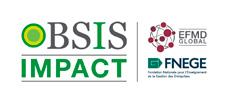
Measuring Impact, Translating Strategy
With an overall impact estimated at €165 million – confirmed by the School’s fourth international BSIS (Business School Impact System) accreditation – HEC Liège stands out as a major driver of the local economy and a key player in regional development. But behind this figure lies a broader ambition: to place impact at the very heart of the 2025–2029 Strategic Plan and to make the School a catalyst for sustainable solutions, both nationally and internationally.
The BSIS analysis framework, developed by EFMD (European Foundation for Management Development) and FNEGE (Fondation Nationale pour l’Enseignement de la Gestion des Entreprises), considers both tangible and intangible dimensions and evaluates a business school’s contribution through seven areas: financial, educational, intellectual, entrepreneurial, regional, societal, and image. The study encompasses all programmes – Bachelor’s, Master’s, MBA, Doctoral, and Executive Education – integrating measurable outcomes within each category.
The impact of HEC Liège unfolds across three clearly identified areas: Liège and its region, the Wallonia – Brussels Federation, and the Meuse–Rhine Euregio.
The €165 million evaluation reflects all flows generated by the School and its stakeholders (the School’s own budget; expenditures by students and partners; spending generated by academic and professional events such as conferences, MBA seminars, and international meetings).
This also includes 320,000 hours of unpaid work performed annually by students in companies through internships, projects, and missions – representing an estimated value of over €10 million.
For HEC Liège, this is more than just a recognition label or a simple assessment: it is a framework that guides strategic choices and validates the relevance of its commitments.
Like Japanese tanzaku, our results appear throughout this issue of SPIRIT as bookmarks hanging from the branches of our strategic tree. We invite you to follow these bookmarks throughout the magazine and discover how they reflect our strategy – within each of our three pillars, across our transversal axes, and through our international outreach.
This journey will allow you to see, chapter by chapter, how HEC Liège aligns its ambition with its purpose and mission: “We nurture the future.”
Nathalie Hosay, Editor-in-Chief
BSIS, Our Guiding Thread: Measuring Impact, Translating Strategy
Financial Impact
• €165 million in overall impact
• 320,000 student work hours per year – equivalent to €10 million
CREATOR OF TALENT AND IMPACT: EDUCATING TO TRANSFORM
Training Agents of Change EDUCATION
In 2025, transmitting knowledge alone is no longer enough. University education must train individuals who are rigorous, open-minded, critical, and agile, capable of understanding the upheavals of the world and providing concrete responses.
« We train talents in economics and management, grounded in strong values and committed to societal transformation, so that they become dynamic drivers of change and ambassadors of our region on the international stage. This is the ambition of the Education pillar at HEC Liège » emphasizes Bernard Fortz, the new Vice-Dean for Education.
A Three-Dimensional Learning Model
To achieve this ambition, HEC Liège has developed a structured pedagogical model. All courses, projects, and initiatives are organized according to a prism of three closely interrelated dimensions:
TO BE (life skills) : personal, relational, and managerial qualities essential for developing confidence and having impact in complex environments.
TO ACT (know-how) : analytical and methodological skills, based on scientific rigor and mastery of tools to solve complex problems effectively.
TO CHANGE (commitment) : the ability to innovate, adapt, and act with impact, through concrete projects, ethical reflection, and the integration of knowledge to responsibly transform the world.
EDUCATION
CREATOR OF TALENT AND IMPACT: EDUCATING TO TRANSFORM
Strategic Objectives for Education
Beyond strong academic skills, HEC Liège focuses on several strategic objectives to support its students in their personal, intellectual, and professional development: fostering a strong sense of commitment to the School; developing soft skills and intercultural awareness; and promoting active and engaged learning. Each objective is broken down into sub-objectives and/or flagship projects that are currently being implemented. We present here a few examples.
1. Creating Strong Commitment to the School
HEC Liège places central importance on welcoming and integrating all its students. A pedagogical innovation of the new academic year, the Welcome Sprint embodies the desire to turn our strategic objectives in education into a concrete experience.
During three days of entrepreneurial, creative, and collaborative immersion, new students are invited to tackle real challenges around the sustainable transition of the City of Liège and civic life, linked to ten major themes.
Guided by professors, researchers, administrative staff, alumni, and partner companies, they imagine innovative and feasible solutions while discovering the School’s core values: engagement, creativity, and team spirit
Beyond the project, the Welcome Sprint offers students a strong first contact with their new environment:
Q Learning to find their place: debating, listening, defending ideas, and building together.
Q Growing personally: developing self-awareness and awareness of others in a supportive and stimulating academic environment.
Q Fully experiencing HEC Liège: immersing themselves in the campus dynamic and network life.
From September 15 to 17, the second edition of the Welcome Sprint mobilized the entire HEC Liège network to provide new students with an intense, collaborative introduction, aligned with the institution’s pedagogical orientations.
In the same spirit, a dedicated welcome day was also organized for the 110 students of the MSMA (Alternating Master in Sales Management).This initiative offered them a first collective experience through integration activities, inspiring testimonials, and moments of conviviality. The format proved highly successful and highlights the importance of offering every student, regardless of their level of study, a meaningful opportunity to connect and feel anchored within the School.
Throughout the academic year, student engagement is sustained through various support and mentoring initiatives. The buddy system, initially introduced by the Student Association (Assoc’), fosters solidarity and mutual support by pairing more advanced students with newcomers. Building on this, a mentoring program has now been developed in collaboration with the POLLEM project (Liège-Luxembourg Academic Hub Mentoring Experience). After a pilot phase in 2024–2025, the program has been offered since the 2025–2026 academic year: volunteer faculty members accompany
up to five first-year students. These close relationships address not only study organization, self-confidence, and motivation, but also life balance, career planning, and stress management. Feedback has been positive: mentees report improved balance, stronger organizational skills, and a broader perspective on their academic journey. Alongside these initiatives, student-led projects further reinforce this community spirit. The Study Corner provides a collaborative workspace where mutual support is encouraged. Finally, the S’LAB Ambassadors project highlights student engagement in service of the community, turning participants into true promoters of the School’s vibrant associative life.
Through these varied and complementary initiatives, HEC Liège aims to foster a strong sense of belonging and actively involve its students in shaping their own journey within the School.
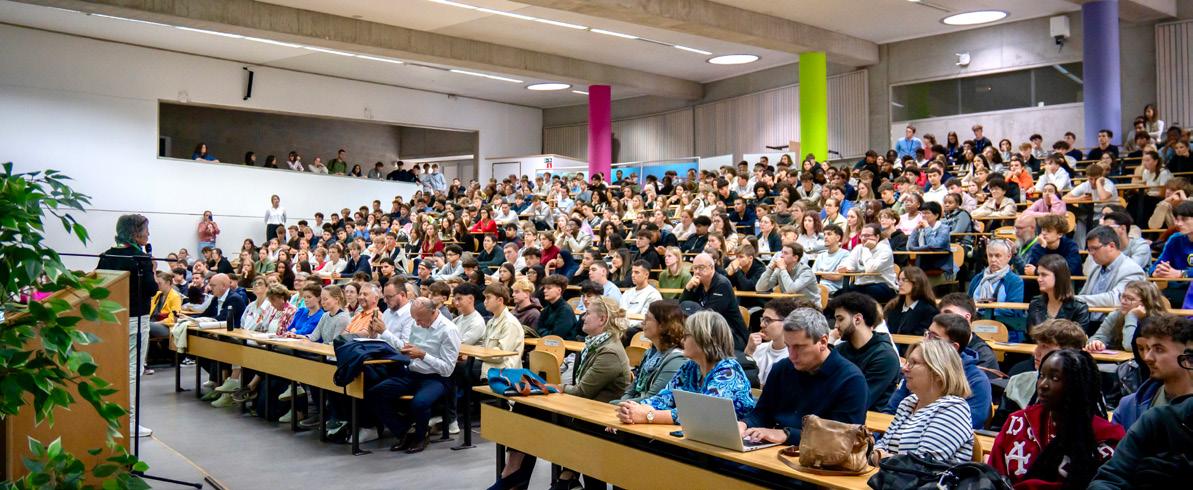
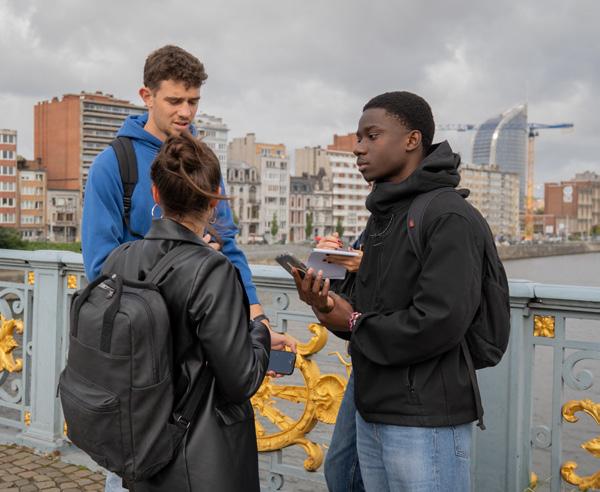
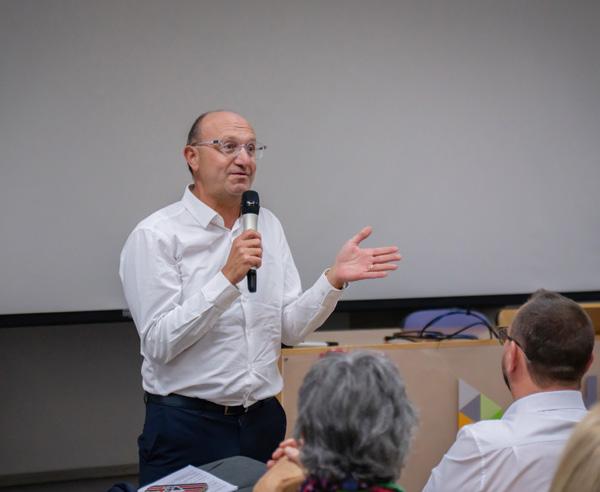
Virginie Havelange - ULiège
EDUCATION
CREATOR OF TALENT AND IMPACT: EDUCATING TO TRANSFORM
2. Developing Soft Skills and Interculturality
The development of soft skills is a central component of our educational strategy. These skills complement academic knowledge by strengthening autonomy, adaptability, communication, teamwork, and critical thinking.
To support this approach, several innovative tools have been introduced. Among them, the Student Journal plays a central role. This digital tool accompanies students throughout their personal and professional journey: it gathers their academic and extra-academic experiences, helps analyze acquired skills, and identify strengths and areas for improvement. It integrates international, linguistic, and intercultural dimensions (study abroad programmes, internships, conferences, student engagement, and participation in OICs). The JDE encourages regular self-assessment, enriched by feedback from professors and professionals collected during academic activities thereby guiding students towards well-informed study and career choices. As a genuine personalized portfolio, it highlights the richness and diversity of individual pathways and contributes to shaping a unique and coherent professional identity.
Another innovative initiative, the Learning Experience Hub (LExHUB), aims to enhance students’ learning experience. It pursues three objectives: improving teaching methods, providing students with feedback on their skills development, and ensuring agile and adaptive programme management. In practice, it relies on continuous monitoring of courses, competencies, and stakeholder feedback to
guarantee the quality and relevance of the training, while reinforcing the School’s societal impact.
Interculturality is at the core of this approach. Each year, the School welcomes students from more than 75 nationalities, creating a stimulating cultural and linguistic mix. ‘Working in teams with students from all over the world changes the way we see things: we learn to collaborate with very different perspectives,’ says Clara, a master’s student.
To go further, HEC Liège is expanding its master’s agreements and developing double degrees in order to attract even more diverse profiles and to offer enriched international pathways for our students.
Interculturality is also embedded in the daily life of our programmes through language courses, new workshops integrated into the skills portfolio, as well as initiatives led by our students and associations.
The ESN (Erasmus Student Network), for example, plays a key role in welcoming and integrating international students, while the new Buddy Up programme fosters mutual support and the sharing of experiences between local and exchange students (we will return in detail to this programme in a future issue of SPIRIT once the experience has been carried out).
Finally, to launch this new academic year, our International Relations Office organized an Intercultural Day on September 16, a great example of how HEC Liège’s values are embodied in concrete actions (see Anne Gillet’s article on page 14).
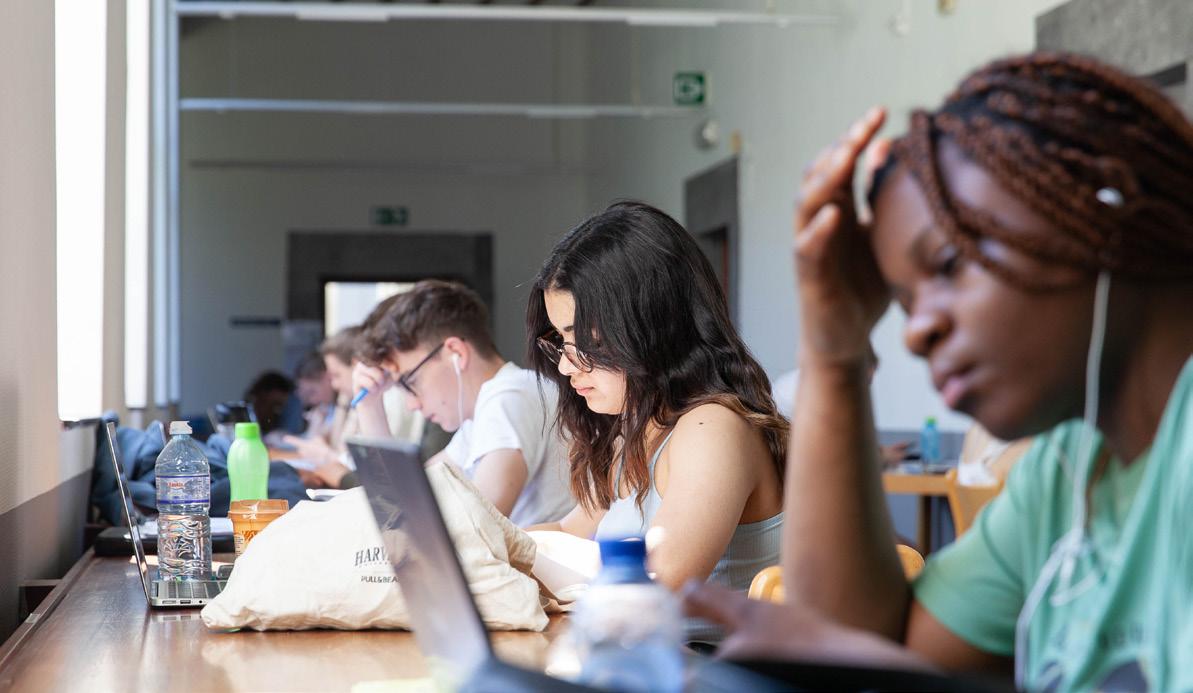
3. Promoting Active and Engaged Pedagogy
The “Education” pillar of the Strategic Plan is grounded in active pedagogy, designed to foster critical thinking, scientific rigor, and personal reflection on the learning journey. The objective is to equip our students not only with solid academic skills but also with the ability to ask the right questions, interpret complex data, and provide relevant and responsible responses to today’s challenges. Three sub-objectives structure this approach:
Q Foster the scientific mindset and analytical skills;
Q Develop innovation and entrepreneurial skills;
Q Cultivate reflection and action for a society in transition.
In the 2024–2025 academic year, HEC Liège launched a comprehensive reform of its programmes, designed to give students a coherent and transparent learning path with a clear progression of knowledge acquisition. This reform streamlines curricula by eliminating redundancies, harmonizing credits, and above all aligning programmes with the School’s strategy, while strengthening courses linked to the three transversal axes: Digital & Analytics, Sustainability & Transitions, and Entrepreneurship & Innovation (see concrete examples of the Labs connected to these axes on pages …).
From the very start of the bachelor’s programme, students are introduced to the challenges of sustainability, transition, and innovation, gain early exposure to leadership and entrepreneurship, engage with scientific methods, and develop analytical tools. At the end of the bachelor’s cycle, integration activities allow them to apply their skills in real-world contexts. At the master’s level, these dimensions are further deepened and consolidated through new integration activities, including the Master’s Thesis.
To make these priorities more visible, a tagging system has been introduced, enabling students to track how each theme is embedded in the programmes and enhancing overall clarity. For example:
Q #digital: a working group supports learning about the responsible use of artificial intelligence and its ethical and environmental impacts;
Q #entrepreneurship: students are encouraged to experiment, create, and take risks;
Q #sustainability #activepedagogy : courses on sustainability and service learning (societal engagement learning, linked to ULiège initiatives) ground knowledge in the reality of ongoing transitions.
The Education Award – a driver of recognition and pedagogical innovation
To support and reward pedagogical innovation, HEC Liège has launched the HEC Liège Education Award. This award highlights original initiatives that embody the School’s strategic priorities, while also recognizing and encouraging change-makers and fostering active learning and student engagement.
On September 17, Nadia Steils received the inaugural Education Award for her immersive Serious Game in strategic marketing. This project engages first-year master’s students in the redesign of a fictitious organic store, C’Real Store. Through interactive videos, data analysis, and content creation, students apply key concepts such as segmentation, cluster analysis, positioning, persona development, customer experience, and digital communication.
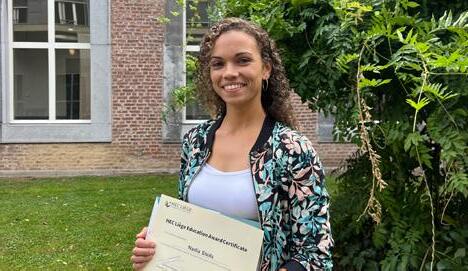
This hybrid and immersive experience not only anchors theoretical knowledge in a semi-real professional setting but also develops transversal skills such as creativity, critical thinking, collaboration, autonomy, and time management. It strengthens students’ confidence in their ability to solve complex problems and make strategic decisions. As Nadia Steils explains: “The aim was to transform a theoretical course, despite the large number of students, into an immersive, concrete, and motivating semi-professional experience, while reinforcing active learning, critical thinking, and collaborative skills.”
This is a strong illustration of how HEC Liège is implementing its Strategic Plan and encouraging faculty to rethink pedagogical approaches in depth.
Finally, we extend our sincere gratitude to Yasemin Arda for her six years of commitment as Director of Studies and Vice-Dean for Education. Until September 30, she led the Education pillar with conviction, dynamism, and dedication, before handing over to Bernard Fortz. Yasemin inspired and motivated her colleagues, enabling the successful implementation of many of the structuring initiatives mentioned above. She invested herself wholeheartedly and contributed actively to the development of our Strategic Plan.
Nathalie Hosay, Head of External Relations & Communication
BSIS, Our Guiding Thread: Measuring Impact, Translating Strategy
Educational Impact
• A growing number of students
• Constantly evolving programmes, particularly addressing the challenges of sustainability, transition, and innovation
• Nearly 900 graduates each year ready to enter the job market
• 98% of graduates employed within a year of completing their studies
EDUCATION
CREATOR OF TALENT AND IMPACT: EDUCATING TO TRANSFORM
Bernard Fortz, Vice-Dean for Education
My academic journey began at the University of Namur, where I earned a degree in Mathematics in 1993, followed by a PhD in Operations Research from ULB in 1998. After postdoctoral stays in the United States (AT&T Labs – Research) and the Netherlands (Maastricht University), I taught Operations Research and Management at UCLouvain from 2000 to 2006. I then joined ULB as a professor, where I led the Graphs and Mathematical Optimization team until I joined HEC Liège in September 2023 as Professor of Optimization Methods in Management.
My research focuses mainly on combinatorial optimization, telecommunication networks, energy, and bilevel optimization. I am actively involved in the international scientific community, serving as Associate Editor for several journals, coordinator of the EURO Working Group on Network Optimization, and President of ORBEL, the Belgian Operations Research Society. From 2015 to 2024, I was also a permanent member of the INOCS research team at INRIA Lille. In June 2025, I took on the role of Vice-President of Logistics in Wallonia, representing the University of Liège.
At HEC Liège, I have the pleasure of teaching students of all levels – from the second year of the Bachelor’s program to Master’s and Doctoral students – with a common thread: showing that mathematics is not an end in itself, but a powerful tool for management and innovation. I enjoy encouraging my students to tackle real-world problems and to explore the latest optimization methods developed in research.
Outside academia, music plays an important role in my life. As an occasional DJ and mashup producer, I have worked as a programmer for the concert hall Le Belvédère in Namur and as a member of the organizing team of the Fernel’Music Festival. Above all, I am the proud father of five grown children – a role that remains the most formative and precious of all.
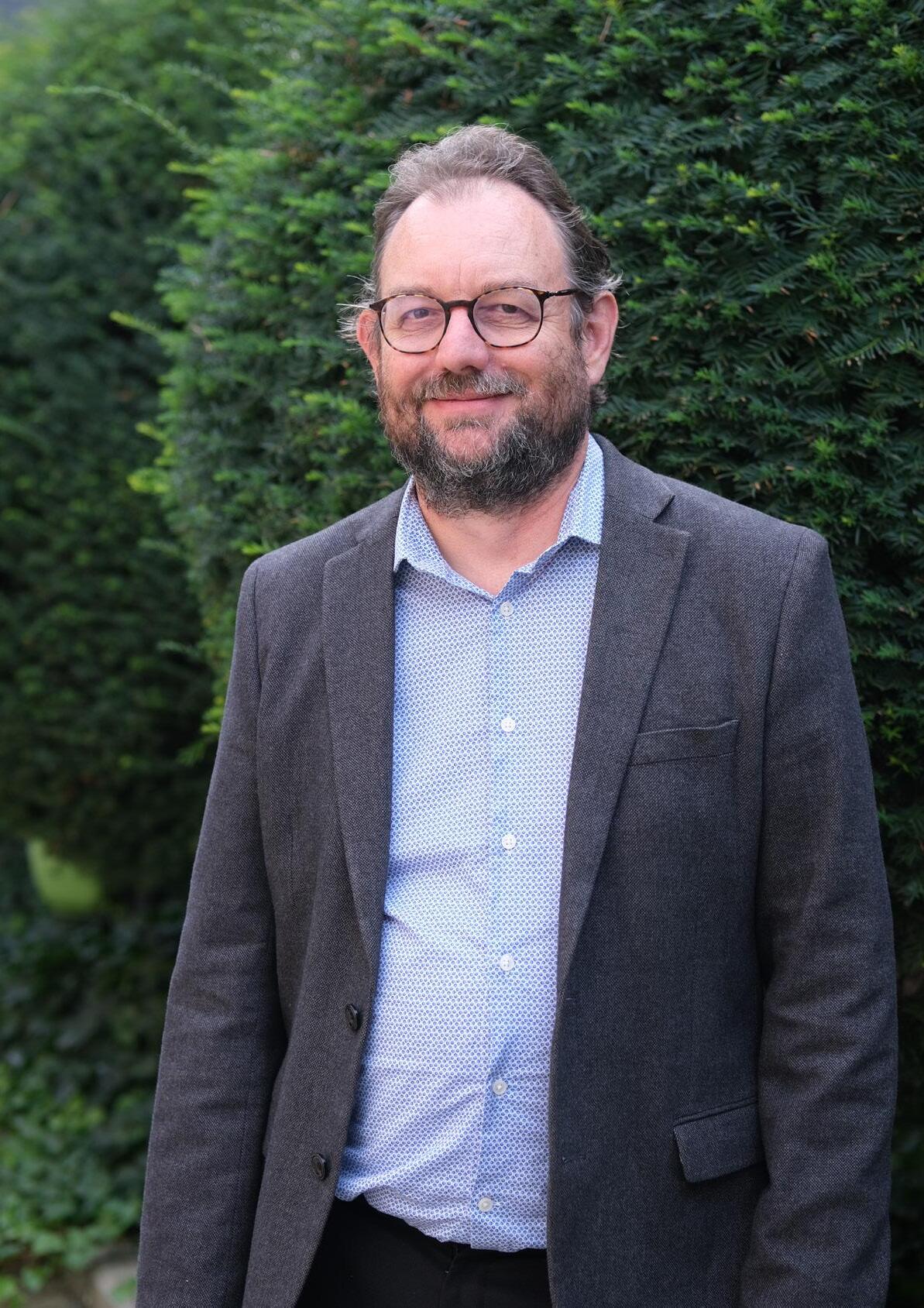
EDUCATION
CREATOR OF TALENT AND IMPACT: EDUCATING TO TRANSFORM
HEC Liège: A campus open to the world
This September, HEC Liège welcomed more than 200 new international students (double degree, degree seeking, Erasmus / exchange), marking the beginning of an exciting academic journey for this diverse cohort. The International Relations Department organized a dynamic three-day induction program designed to inform, connect, and prepare them.
Throughout the induction, the School’s commitment to shaping responsible, innovative, and globally minded future managers was evident in every activity. The program also embodied the institution’s core values:
Citizenship & Inclusivity
By bringing together students from diverse backgrounds and fostering mutual respect and understanding.
Rigor & Creativity
Through well-structured academic guidance and engaging, imaginative activities like a treasure hunt.
Ethics & Responsibility
By encouraging students to reflect on their roles as responsible global citizens.
The induction days were designed to ensure that students not only received essential academic information but also felt welcomed and supported in their new environment. The program kicked off with an information session , where students were introduced to the school’s academic structure, support services, and key contacts. This session laid the foundation for a smooth transition into their studies and life in Liège.
Recognizing the importance of intercultural understanding in a global academic setting, the second day featured an intercultural seminar . This engaging workshop, organized together with the School’s Language Department – warm thanks to them! – encouraged
To help students become familiar with their new surroundings, we also organized a treasure hunt across campus. This fun and interactive activity allowed students to explore key locations, discover hidden gems, and learn practical tips about navigating their new academic home. From lecture halls to student lounges, the treasure hunt turned orientation into an adventure.
On the last induction day, each student finally had the opportunity to meet individually with their academic coordinator , ensuring personalized guidance and support from the very beginning. These one-on-one meetings helped clarify academic expectations, course selections, and future goals, reinforcing the school’s commitment to student success. Adding a touch of fun and community spirit, the induction days concluded with a series of social events organized by the ESN (Erasmus Student Network). From welcome parties to city tours, the ESN created a lively atmosphere where students could relax, socialize, and celebrate the start of their new chapter. These events not only fostered friendships but also introduced students to the vibrant student life in Liège.
Beyond the much-needed practical orientation, these induction days were designed to instill a transformative mindset in international students from the very beginning of their stay:
Q To be : confident, curious, and open-minded individuals, ready to embrace new perspectives.
Q To act : with purpose, initiative, and collaboration in their academic and social environments.
Q To change : by growing personally and professionally and by contributing positively to the world around them.
As our welcome days came to a close, we were proud of our efforts to create a warm, inclusive, and engaging welcome for our international students. With strong support systems in place and a community ready to embrace them, these students are now well-equipped to thrive academically and personally in their new environment.

Anne Gillet, Head of the International Relations Office
RESEARCH
CREATOR OF KNOWLEDGE AND IMPACT: RESEARCH TO DRIVE CHANGE
Research in the 2025–2029 Strategic Plan
Over the past 20 years, HEC Liège’s journey in shaping its research policy has been remarkable, both in terms of the quality of fundamental research and its societal impact. A thorough reflection, enriched by the external expertise of accreditation bodies and by the Scientific Advisory Board established in 2007, has enabled HEC Liège to articulate a research strategy designed to traintop-level researchers with international scientific reach. This naturally continues through the “Research” pillar of the 2025–2029 Plan.
The key notions underpinning this strategy are closely tied to the School’s DNA: our research seeks to generate impact –both scientific and societal; it provides an agile response to emerging challenges; and it is anchored in the entrepreneurial spirit that permeates HEC Liège. This approach combines the university’s commitment to autonomy and excellence with a strong ambition to make research meaningful to society at large – to both the scientific community and the economic and social fabric of our region.
As for the definition of major strategic objectives supporting our ambition, we largely continue along the path set by the previous plan (2019–2024), which introduced ambitious yet realistic indicators, rigorously monitored and assessed. This framework provides both a solid basis for consistent long-term evaluation and the flexibility to adapt where needed to sustain our strategic trajectory. In essence, we will strengthen our assets, address our areas for improvement, and bring in new dimensions aligned with our vision and values.
The strategic objectives in research remain fourfold:
1. Publish High-Quality Research
This dimension is the foundation of our credibility. With 60 articles in top international journals published over the past five years, our objectives of excellence and recognition within the scientific community have been achieved, and we intend to continue on this upward trajectory, in both quality and quantity.
To this end, the publication reference framework was revised in 2024 to maximize alignment with influence indicators recognized by the scientific community. Furthermore, more than three-quarters of our research staff (77%) contributed to international-quality publications. The trend is positive, and we must keep building on this momentum. Concretely, HEC Research will allocate resources to strengthen scientific exchanges and partnerships, improve research conditions – including publication support and protected research time – and further encourage researchers through training, recognition, and the Research Awards.
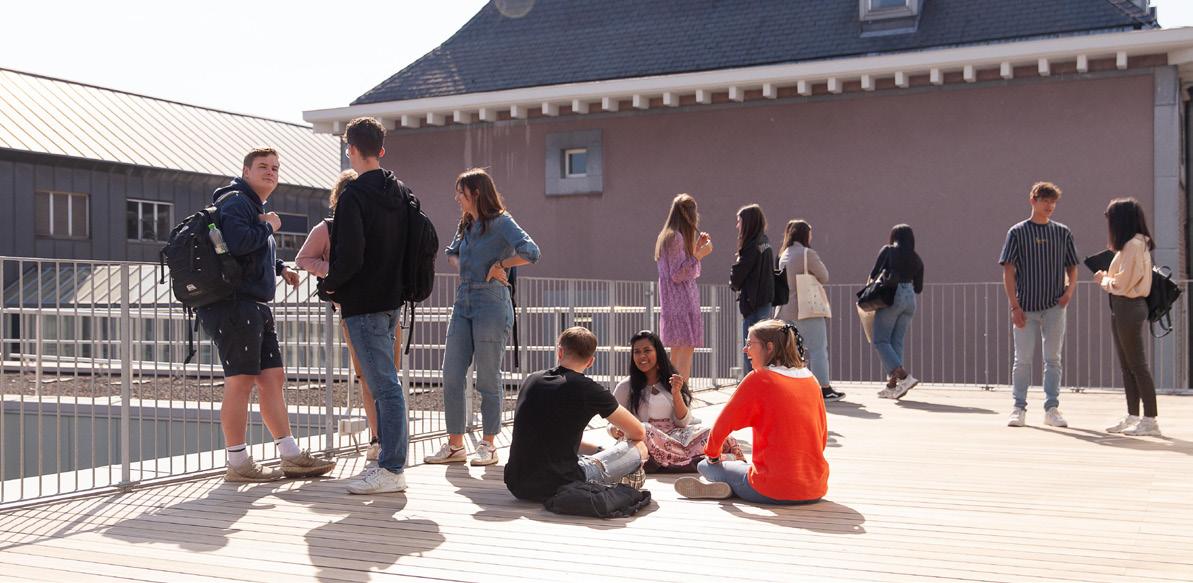
RESEARCH
CREATOR OF KNOWLEDGE AND IMPACT: RESEARCH TO DRIVE CHANGE

2. Co-create impactful and valuable research
This objective reflects our efforts to deliver research that brings value to all our stakeholders and evolves with major societal trends, with a transversal focus on Sustainability & Transitions, Digital & Analytics (increasingly integrating AI), and Entrepreneurship & Innovation. Today, 50% of our publications address these transversal strategic domains.
In terms of research impact, 86% of our scientific publications have led to managerial outputs – progress, but short of our goal of 100% (a one-to-one ratio), or beyond. To achieve this, HEC Research invests significantly with a guiding principle: to make research in economics
and management accessible to all. This is embodied through the Pulse podcast (two seasons already, with 20 episodes available on Spotify and Apple Podcasts; Season 3, dedicated to our PhD candidates, is in production), popular science articles in The Conversation – several of which are among the most read – as well as the creation of the Impact page, a showcase of HEC Liège’s internal expertise, and the Impact newsletter on LinkedIn to share the latest research insights.
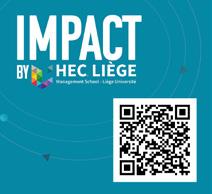
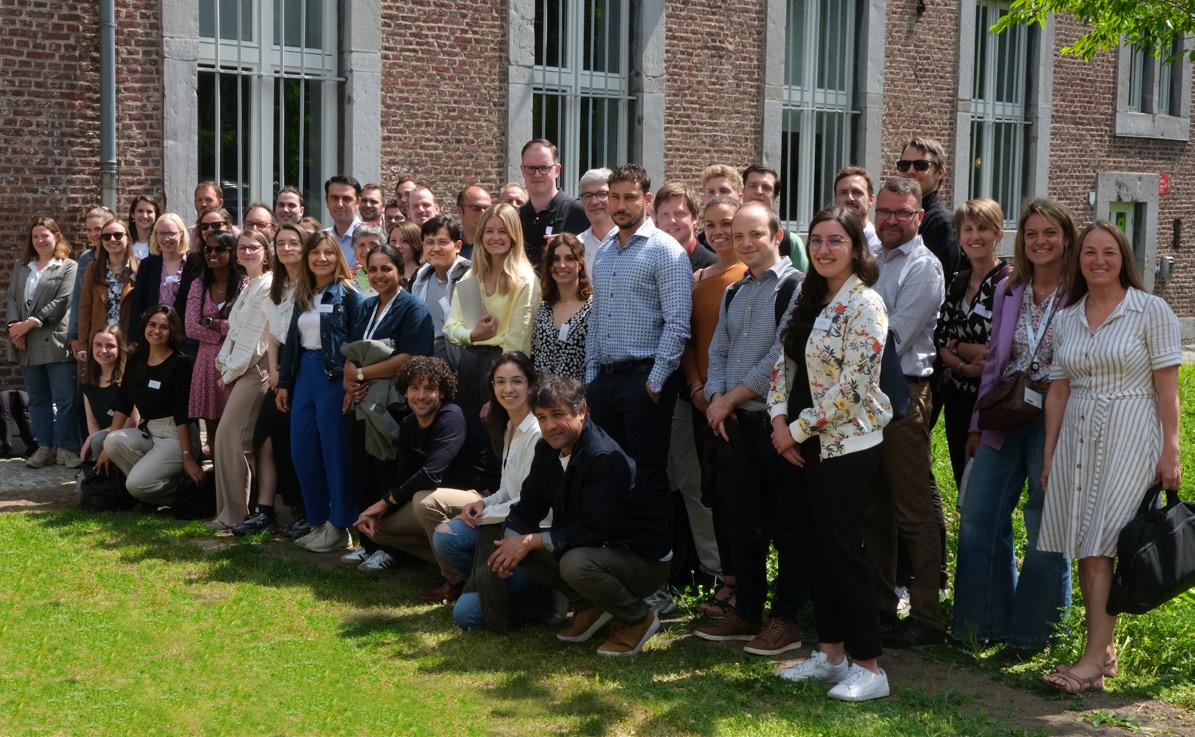
Research Day 2025 – May 20 – Keynote speaker: Pablo Muñoz, Durham University Business School. Theme: The Art of Entrepreneurship – On Letting Research Insights Breathe
3. Train Qualified and Productive Researchers
Between 2020 and 2024, HEC Liège welcomed 82 new PhD candidates and graduated 31 PhDs. While the first figure is satisfying, the second highlights an area requiring attention, addressed through a new action plan under this Strategic Plan.
Beyond revised admission criteria and increased visibility of our doctoral programme, a detailed satisfaction survey has been launched and will be closely monitored to improve completion rates under opimal conditions. In the short term, PhD candidates nearing the end of their journey will be particularly highlighted in Season 3 of the Pulse podcast, which is dedicated to them.
Another priority is strengthening supervision. Currently, around three-quarters of faculty supervise at least two doctoral candidates. While this rate is acceptable, it can and must be improved, notably by making research project funding more accessible and effective.
4. Strengthen our global presence
This is the dimension where significant developments are planned during the 2025–2029 Plan. These include the creation of the new Impact page and new indicators designed to measure the international scope of our researchers’ co-authorship networks.
Substantial financial resources are also dedicated to supporting the internationalization of our researchers. These will be reinforced and targeted to help achieve our ambitious objectives in this dimension.
Looking ahead
The progress already made is significant, and the results are very encouraging. With the 2025–2029 Plan, we are raising the bar even higher – not only pursuing continuous improvement but also striving for a a qualitative leap.
For this, our School can rely on an outstanding research support team: Muriel Vervier, Guadalupe Amésquita Palacios, and Marie Castronovo. With enthusiasm and professionalism, they provide the strongest possible guarantee of flawless implementation and follow-up of the strategy we have set in place.
Last but not least, special thanks go to the former Vice-Deans for Research, Professors Marie Lambert and Laurence Dessart, whose contribution to both the 2019–2024 plan and the current one has been invaluable. They brought research at HEC Liège to a level of maturity and excellence that is already a reference for our Alma Mater and for business schools in our wider environment. I sincerely thank them for the legacy they leave us.
As I continue my mandate over the next two years, I will pursue their work with conviction, while bringing my own perspective and experience. This will be particularly reflected in the economic valorization of research, notably through incentives for the creation of spin-offs and other entrepreneurial initiatives.
Prof. Georges Hübner, Vice-Dean for Research
BSIS, Our Guiding Thread: Measuring Impact, Translating Strategy
Intellectual Impact
• 224 publications in peer-reviewed journals, including 60 with international reach
• 92% of our scientific publications disseminated through managerial communication channels
• 300 outputs with managerial, educational, or societal impact
• Over 400 international conferences featuring our researchers
RESEARCH
CREATOR OF KNOWLEDGE AND IMPACT: RESEARCH TO DRIVE CHANGE
Georges Hübner, Vice-Doyen for Research
Professor at HEC Liège since 1997, Georges Hübner combines a career as a teacher-researcher, entrepreneur, and corporate executive, all of which he puts at the service of his students. Drawn to finance from an early age, he devoted his PhD studies at INSEAD (Fontainebleau) to the field. He entered academia directly, joining the University of Liège and, on a part-time basis, Maastricht University, where he remained for over 20 years. “Finance brings together the hard sciences, such as physics and mathematics, with social sciences like sociology and psychology.” This diversity of disciplines – whether in research or teaching – is a challenge he relishes, always with a playful spirit. (Georges is also an avid checkers player).
Having taught numerous courses and published widely across the three major areas of finance – corporate, markets, and institutions – Georges Hübner seeks to share with his students a taste for this “ beautiful yet often misunderstood discipline,” while raising their awareness of responsibility in a context where social and climate issues linked to business management preclude focusing solely on shareholder profit.
In 2007, Georges Hübner founded a fintech company –though the term did not yet exist at the time – Gambit Financial Solutions, as a spin-off from ULiège. Today, Gambit has been acquired by BNP Paribas and em-
ploys nearly 130 people, mainly in Liège. Building on this success, he co-founded another fintech in 2021, SOPIAD, which is pursuing a promising trajectory, signing prestigious clients in banking, insurance, and asset management.
Georges also has experience in corporate governance within the financial sector: since 2015, he has been a member of the Board of Directors and Chair of the Audit Committee of Belfius Bank, and at the beginning of this year he became Vice-Chairman of the Board of Directors of Belfius Asset Management. He is also involved in the regional economy, serving as a Board Member and Chair of the Audit Committee of Moury Construct, a company listed on Euronext. Most recently, in 2024, he co-authored The Complete Guide to Portfolio Performance with Pascal François, Professor at HEC Montréal – a 1,100-page reference work featuring 700 equations, aimed primarily at professionals, students, and academics in finance, yet accessible to a broader readership.
At this stage of his career, it has becomes particularly meaningful for him to put his experience and expertise at the service of the community. Georges is particularly motivated by this new mission, which he intends to pursue with energy, rigor, and creativity.

SERVICE & CITIZENSHIP
CREATOR OF CONNECTIONS AND OPPORTUNITIES: CONNECTING TO ENGAGE
Stakeholders of the School
Individuals are at the heart of HEC Liège's strategy and operations. It is therefore essential to consider every stakeholder and ensure that their expectations and aspirations are addressed on an individual basis.

BSIS, Our Guiding Thread: Measuring Impact, Translating Strategy Societal Impact
• 2,898 participants, representing 120,000 training hours in Executive Education
• 150 partner companies and organizations
• Nearly €2 million per year in support from companies and organizations
• 253 guest speakers from the business world each year
• A network of nearly 20,000 alumni
• Over 100 positions held by HEC Liège members in professional organizations and companies
The Group for HEC Liège
Collective Engagement as a Strategic Lever
The new Strategic Plan of HEC Liège was designed using a resolutely participatory approach. From the very first stages, members of the Group for HEC Liège were actively involved in the reflection process, contributing their field experience and forward-looking perspectives on academic, economic, and societal challenges. This collaborative approach has strengthened the ties between the School and its stakeholders – alumni, business leaders, and academic and institutional partners. The exchanges helped shape the School’s vision and define concrete priorities to increase HEC Liège’s impact both in its region and internationally, as confirmed by the BSIS analysis. Through their commitment, the members of the Group for HEC
Liège illustrate how the richness of the HEC Liège network represents a strategic asset in driving transformation. Whether in digital innovation, lifelong learning, or cross-sector collaboration, their active involvement is a key lever in translating HEC Liège’s ambition into tangible actions.
Sabine Colson, Coordinator, WE Cession & Acquisition, and Alexandre Streel, Partner, BDO – Co-Chairs of The Group for HEC Liège
Two Paths, One Conviction: Engagement Within the Group Creates Impact
Their commitment within the Group for HEC Liège exemplifies the strong and unique relationship that unites the School and the business world – not to mention the strength of the Alumni network! Through their experiences, Laurence Carabin, Head of the Administrative and Financial Department at CHU Liège (Class of 2004), and Nancy Fraipont, Director of Ateliers Fraipont (Class of 2003), share how the 2025–2029 Strategic Plan comes to life in practice.
HEC Liège recently presented its new Strategic Plan, structured around three transversal axes: sustainability, digitalization, and entrepreneurship. As alumni and active members of the Group for HEC Liège, how do you perceive these orientations, and what do they inspire in you?
Laurence Carabin : I discovered the new Strategic Plan last Spring. I found it so inspiring – and so well-aligned with the strategy of CHU Liège – that I immediately sent it to our Head of Strategy! Sustainability and digitalization are much more than current trends; they are societal imperatives that are now shaping all strategic decisions, whether at CHU or elsewhere. I can clearly feel that HEC Liège is in tune with its time – and with the realities of businesses.
Nancy Fraipont : The three themes are obviously relevant and essential in today’s world. What makes the Group for HEC Liège so valuable is precisely this link between academia and the entrepreneurs who are members of it. Together, we can better orient the education of young people through concrete, market-driven programmes built around these three strategic axes.
What motivated you to join the Group for HEC Liège?
Laurence Carabin : Initially, it was to meet other regional companies. CHU Liège has become increasingly open to the outside world, especially since the Covid crisis. We want to give back to the community that has supported us and to play our role as a regional driving force. The Group also helps us increase our visibility – for recruitment, or for master’s theses and student projects.
Later, I discovered other aspects of the Group, such as workshops on specific issues – for instance, how to make Liège more attractive to students, professionals, and investors. These may seem like small things, but they can create real impact, and I enjoy contributing to my city’s development.
Nancy Fraipont : I simply wanted to give back what I had received. For me, it was obvious to support the School that trained me – to help it remain sustainable, attractive, and relevant in today’s business world.
In your view, how does the Group for HEC Liège help bring the School closer to its regional ecosystem, in line with its mission?
Laurence Carabin : The Group allows companies to connect with each other and form a truly interconnected community. It also enables HEC Liège to stay attuned to our needs and our future visions, helping adapt curricula and prepare students for the real challenges of tomorrow.
Nancy Fraipont : By educating young people in the heart of Liège, HEC Liège undeniably helps generate life and energy both on and around campus. It also sparks a desire among students to engage with the local business world – to create start-ups, to innovate, and to increase the number of SMEs in our region, contributing directly to its economic vitality.
If you had to describe what HEC Liège means to you today in one phrase, what would your key word be?
Laurence Carabin : The courage to innovate!
Nancy Fraipont : A local flagship striving for excellence for our youth and their entrepreneurial future.
SERVICE & CITIZENSHIP
CREATOR OF CONNECTIONS AND OPPORTUNITIES: CONNECTING
TO ENGAGE

Laurence Carabin
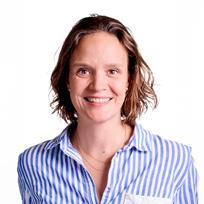
Laurence Carabin, CHU Liège collaborates with HEC Liège on several fronts. What do these synergies concretely bring to your organization?
In hospital management, the word management truly matters. We are indeed a business – with 6,000 employees and €900 million in turnover.
The hospital management workshop, for example, gives HEC Liège students a chance to discover the richness and complexity of this field. We need finance professionals, logistics experts, project managers, functional analysts – not only doctors and nurses!
Conversely, many people from medical backgrounds move into management roles. They too need training in leadership. Offering them a high-level Executive Certificate from HEC Liège Executive Education – combining strategy, people management, finance, logistics, labour law, and tailored to healthcare institutions – is a real asset to help them succeed in that transition.
From a hospital’s perspective, how does HEC Liège’s academic expertise help you meet your own challenges?
Laurence Carabin : Beyond teaching and training, HEC Liège helps us stay at the forefront of key topics such as sustainability and artificial intelligence. These are highly strategic priorities for CHU.
Hospitals are often criticized for waste or high energy consumption, so we are fully committed to the energy transition, decarbonization, waste and water management, and biodiversity.
As for AI, it is revolutionizing medicine. It is not just about generating notes or texts – it is reshaping diagnosis and care processes. This raises new questions around ethics, algorithms, and accountability. HEC Liège brings us its academic and research expertise, while CHU provides a vast laboratory to test hypotheses and confront theory with practice. Everyone benefits.
What future developments would you like to see in the collaboration between CHU and HEC Liège, especially in digitalization and managerial innovation?
Laurence Carabin : Research has always been part of our DNA, but now we want to go further and develop a genuine spirit of innovation. The goal is to foster the development of great ideas through entrepreneurship and spin-off creation.
Our physicians are dedicated to care, teaching, and research – they do not always have the time to explore markets or scale up their innovations. That is why we need project leaders who can take our innovations beyond the hospital walls, so they can benefit more people. This is why we are strengthening our collaborations with HEC Liège, RISE, and Gesval, all linked to ULiège. We recently launched Kaplab, which designs innovative, tailor-made technical aids for people with disabilities, and BabyDetect, a world-first advancement in neonatal screening.
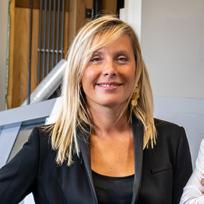

Nancy Fraipont
Nancy Fraipont, as the head of a family business, how does your engagement in the Group for HEC Liège nurture your leadership and entrepreneurial vision?
The Group for HEC Liège is a wonderful network – of alumni and non-alumni alike – united by shared values: entrepreneurial vision, personal commitment, intellectual curiosity, kindness, and collaboration.
It is an ongoing source of inspiration, both individually and collectively, as we bring together professionals from many different sectors – each a source of ideas and innovation.
How do you see HEC Liège playing its role as a catalyst for sustainable solutions for local businesses?
Nancy Fraipont : HEC Liège is a springboard for forward-thinking young people, and as such, the School has a key role to play – to spark vocations, open up new market opportunities in sustainability, and help regional SMEs remain competitive. In doing so, it helps elevate our region in every economic sense.
What advice would you give to companies that are hesitant to join the Group for HEC Liège?
Nancy Fraipont : Training our youth is the foundation for our region’s future success. As entrepreneurs, we each have a role to play – to share our vision, our experience, and our advice.
It is a matter of ethics. And beyond that, what a pleasure it is to meet peers from time to time in such a spirit of warmth and collaboration!
Nathalie Hosay, Head of External Relations & Communication
Want to discover the members of The Group for HEC Liège?
Here is a sample of the companies currently part of the Group for HEC Liège – representing a wide range of sizes and sectors, reflecting as closely as possible the economic fabric of our region.
You can view the full list at: www.groupehec.uliege.be/membres
BEL ARTS MASSON Marie Senior Investment Advisor
CIRCUIT DE SPA FRANCORCHAMPS BERTHOLOMÉ Amaury CEO
ETEX GROUP DELVAUX Bernard CEO
GALERE ERNST Henri CEO
LDS ADVISORY PELERIN Laurence Partner
NELLES FRERES MIDREZ Catherine HR Director
RSM GROUP FOCANT Michaël Partner - Head of Operations (Liège office)
RENO ENERGY DUPONT Arnaud CFO Groupe
GAMBIT FINANCIAL SOLUTIONS BODSON Laurent CEO
GROUPE PREFER INDUSTRIES BREDA Juliette Head of General Services
IZIKO ZOVI Didier Partner
OSTBELGIENINVEST
VEITHEN Margit CEO
QU4TRE MODAVE Julien CEO
RENO ENERGY DUPONT Arnaud CFO Groupe
TRENDY FOODS PLUNUS François Chief Operating Officer
UCM GAMBINI Rodolphe Chairman
SERVICE & CITIZENSHIP
CREATOR OF CONNECTIONS AND OPPORTUNITIES: CONNECTING TO ENGAGE
HEC Liège and its partners: an ecosystem in action
Founded by businesses, HEC Liège has grown alongside them. The entrepreneurial spirit permeates all the School’s activities and remains one of its greatest strengths. Both the Strategic Plan and the BSIS impact assessment highlight this mindset, as well as the privileged ties the School maintains with its entrepreneurial ecosystem.
We spoke with three companies that have been long-standing partners of HEC Liège: FN Browning Group, Ethias, and PwC Belgium and Luxembourg - to hear their perspectives on the School.
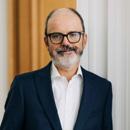

FN Browning Group: A Founding Partner of HEC Liège
Julien Compère, CEO of FN Browning Group, and Jean-Christophe Botteman, Managing Director of FN Herstal, are actively involved in HEC Liège’s governance, guest lectures, and financial support – notably its internationalization.
What do you see as the School’s main strengths?
HEC Liège offers programmes that are closely aligned with business needs. The curriculum, partly designed in collaboration with companies, prepares students in very concrete ways for the professional world. Courses are regularly updated and sometimes directly taught by industry managers, enriching academic training with practical insights grounded in organizational realities.
Another asset of the School is the development of joint programmes with other faculties. For example, the collaboration with HELMo-Gramme trains industrial engineers. Students obtaining this double degree combine key skills highly valued by industrial companies such as our FN Herstal subsidiary.
Finally, although internships are not unique to HEC Liège, the School places great emphasis on hands-on training through internships and applied projects, which ensures that graduates are immediately effective when joining companies.
We should also highlight the strength of the Alumni network and the ecosystem of more than one hundred corporate partners. This dynamic fosters high-quality networking opportunities, both locally and internationally.
What does HEC Liège bring to you?
HEC Liège is an integral part of the local ecosystem of a company like ours:
Q The School also provides services to companies. For example, at our request, HEC Liège conducted an in-depth study on the social and economic impact of our activities in Belgium and our local supply chains.
Q By training students, HEC Liège provides us with a talent pool whose skills match business needs.
Q The School offers executive education programmes in areas such as HR, import/export, supply chain, and procurement. Several of our colleagues have completed such programmes in recent years to expand or strengthen their skills.
Q Finally, the HEC Liège Alumni network provides high-quality events, including conferences and networking lunches, which are particularly valuable for professional exchange.
Julien Compère & Jean-Christophe Botteman


Ethias: A Founding Partner of HEC Liège
We asked Philippe Lallemand, CEO of Ethias, how he perceives the contribution of HEC Liège to the regional economic ecosystem.
Philippe Lallemand: HEC Liège plays a structuring role in the regional ecosystem. It educates young people who are rooted in business realities and capable of addressing on-the-ground challenges. It is a School that combines academic excellence, local anchoring, and global openness. For Ethias, this is a true source of hope: seeing a generation emerge that is engaged, competent, and committed to society.

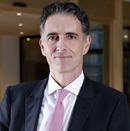

Which competences or expertise from HEC Liège are particularly valuable to Ethias?
Expertise in artificial intelligence, sustainable finance, leadership, and venturing is essential. Our collaborations clearly show how these programmes are directly linked to the real challenges of the insurance sector and organizational transformation. It is precisely this ability to educate young people ready to act, innovate, and drive transformation that makes HEC Liège such a key partner for the future of our companies.
PwC: A Historic Partner of HEC Liège
Amaury Evrard, Partner PwC Luxembourg, and Mélanie Adorante, Partner PwC Belgium, reflect on their collaboration with HEC Liège. As one of the Big Four, PwC is a major recruiter. Does the partnership help you in your recruitment and employer branding strategies?
Amaury Evrard: Yes, this partnership plays a key role in our recruitment and employer branding. Being involved with HEC Liège since 2005 keeps us connected to a forward-looking academic community. Through our participation in the School’s activities – conferences, juries, events – we have the opportunity to meet highly motivated students, well-trained and already aware of professional challenges. This direct link fosters dialogue, enhances our attractiveness, and enables us to identify talents early on who share our values.
Mélanie Adorante: For many years, the collaboration between PwC Belgium and HEC Liège has been essential to our recruitment strategy, particularly for our Liège office. This strong partnership allows us to meet motivated young talents, whether for internships or for junior auditor positions at the end of their studies. Regular exchanges, joint events, and proximity to the faculty help us quickly identify the profiles that match our needs and ensure their smooth integration into the professional world.
This lasting relationship with HEC is a real asset to strengthen our employer brand and ensure high-quality recruitment aligned with the sector’s requirements. Beyond recruitment, HEC Liège also helps our employees to progress more rapidly in their IRE internship – a crucial step toward ensuring the sustainability of the profession. Finally, as at PwC, HEC places strong emphasis on its Alumni community, of which the majority of our Liège office is a part.
Do you think this type of partnership helps bridge academia and business?
Amaury Evrard: Absolutely. This partnership translates into very concrete collaborations. For example, in the investment funds course, several PwC experts – partners and directors – were invited to deliver sessions on specific topics such as asset valuation and fund regulation. Integrated into the academic curriculum, these modules provide students with a direct perspective on industry practices. We also worked with HEC Liège to analyze the gaps between academic content and the IRE requirements for the statutory auditor curriculum. The goal was to identify how certain courses could be adapted to better meet professional prerequisites. In addition, we exchanged views on the emerging training needs for new profiles to address the transformation of the profession, including digitalization and artificial intelligence. These exchanges foster a genuine co-creation dynamic between academia and business, to the benefit of both students and the sector.
Sandra Delforge, Director of Corporate Relations, Career Development & Alumni Network
Philippe Lallemand
Mélanie Adorante & Amaury Evrard
SERVICE & CITIZENSHIP
CREATOR OF CONNECTIONS AND OPPORTUNITIES: CONNECTING TO ENGAGE
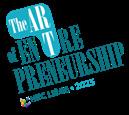
The Art of Entrepreneurship by HEC Liège Alumni : Create, Succeed, Impact
At the heart of its Strategic Plan, HEC Liège has made entrepreneurship and innovation one of its major transversal axes. The School nurtures a genuine entrepreneurial spirit and fosters the development of projects to maximize its impact on the region and beyond. The Business School Impact System (BSIS) has also highlighted the scope of this entrepreneurial impact and the driving role played by HEC Liège and its Alumni network within the regional ecosystem.
Yet behind the figures lie faces, journeys, and stories. Our Alumni entrepreneurs and business successors embody this impact every day through their professional journeys. They innovate, create jobs, expand internationally, and inspire others. As we celebrate the Year of the Art of Entrepreneurship, we invite you to discover four emblematic journeys.
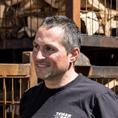
James Demaret
Alumni 2004, ITS Wood / Tcharbon / Watt de Feu / Tchin
« To dare is to let the heart act where the mind would still hesitate »
From the successful takeover of a timber trading company that has become an international benchmark to the creation of strong local brands, James has built an agile and resilient business model. His story includes a turnaround in 2012, strategic redesigns, and international expansion. His journey demonstrates the power of vision, perseverance, and entrepreneurial agility.

Loïc Claeys
Alumni 2022, Claeys.Design / BUGG Motion
« Atypical, creative, perfectionist & multi-skilled. » At just 27, Loïc has been developing BUGG Motion for three years: a minimalist, 600-kg, four-seater electric microcar. Whether through this project or the ones he supports via Claeys-design.com, his technological boldness and tenacity embody a new generation of entrepreneurs who relentlessly pursue their goals, however ambitious they may be.

Laurence Vandenborre
Alumni 2013, Laurence Vandenborre Fine Jewelry
« Crafting today, Treasuring tomorrow. » Her fine jewelry house designs bespoke creations that accompany life’s most precious moments. Already established in London and Los Angeles, her collections attract a growing European clientele. Laurence epitomizes creativity and refinement combined with international ambition, positioning her as a role model for bold and responsible entrepreneurship.

Marc-Antoine Wautelet
Alumni 2012, Bulthaup Liège
« Forget that you don’t stand a chance, just go for it. You never know, it might work out. » As Managing Director of Bulthaup Liège, Marc-Antoine successfully took over a flagship interior design brand and breathed new energy into it. His testimony also highlights the human dimension of entrepreneurship: a gradual transition towards independence, made possible thanks to the support of his close circle and a clear vision of the future.
These four stories – between creation and succession – embody the very essence of the Art of Entrepreneurship that HEC Liège celebrates in 2025. They demonstrate that entrepreneurship means both innovating and transmitting, imagining and consolidating. Through them, our Alumni network illustrates the mission of HEC Liège: to train bold, creative, and responsible leaders, capable of turning ideas into sustainable value and generating a tangible impact on society.
Aurore Tilkin, Corporate Relations & Alumni Network Manager
Executive Education : Rethinking Executive Education to Meet Today’s and Tomorrow’s Needs
Developing responsible leaders for a changing world
Economic and technological transformations are reshaping the skills required to lead organizations. The future is full of uncertainties, but it also exposes the limits of our current trajectory – marked by contested industrial choices and growing environmental and social tensions. Training leaders today means not only preparing them to manage the unexpected, but also equipping them to influence this trajectory, assume responsibility, and contribute to a positive societal impact.
A Committed Learning Community
Beyond individual skills, our ambition is to strengthen a true community of learning leaders. Executive education does not stop at the classroom door: it nurtures a network of peers, a space for intergenerational and intercultural dialogue, where experiences and questions can be shared openly. It is this collective intelligence that enables leaders to move beyond individual logics and co-construct responses to contemporary challenges.
Rooted in the local economic fabric yet connected to an international academic network, HEC Liège Executive Education offers a framework where critical thinking, responsibility, and innovation come together to prepare for the transformations of tomorrow.
Greater Flexibility in Executive Education
Personalized learning paths meet the growing demand from managers for skills updates, especially in response to technological shifts, and also for support during professional transitions. Some seek to grow within their organization, others prepare to join new environments or even entirely new sectors, often in search of meaning and alignment with their values.
Variety and Recognition
To address these diverse needs, our inter-company programmes include a wide range of short modules as well as specialized certifications. These certifications combine flexible à la carte modules with longer, in-depth programmes – university certificates or MBAs – that can be leveraged in varied career trajectories. The dual objective is clear: to strengthen professional effectiveness while equipping leaders with tools to act differently, more responsibly and sustainably.
Training Priorities
Whether tailor-made within organizations or offered in inter-company formats, executive education at HEC Liège aims to equip leaders to anticipate, mobilize teams, and make informed decisions. But it goes further: it must help develop a type of leadership capable of guiding and supporting the profound transformations of organizations and society.
It is built around three dimensions:
Q To be: personal development
Q To act: operational competences
Q To change: transformative capacity
Self-knowledge is essential: understanding one’s emotions, strengths, and biases enables leaders to face complexity with serenity and to make courageous decisions with societal impact.
In an unstable world marked by economic and geopolitical volatility, rapid technological advances, and environmental urgencies, leaders must not only adapt but also innovate and reshape trajectories. True leadership does not consist in merely reacting to uncertainty; it means acting for sustainable, inclusive, and meaningful performance.
From the Executive Forum to E-Learning
As professional interactions increasingly move online, we have chosen to strengthen face-to-face collective moments, with formats such as the Executive Leadership Forum or “Negotiation Lunches.” These activities foster experience sharing, peer learning, and in-depth debates about the role of leaders in society.
At the same time, digital learning allows us to reach specific – and sometimes distant – audiences, creating new learning communities. These hybrid exchanges, both virtual and in-person, guarantee a rich, human, and engaging learning experience.
Meaning, Meaning, Meaning…
Whatever the format, the priority of Executive Education at HEC Liège is to develop in leaders not only analytical and critical thinking skills, but also a consciousness of their impact. Training executives means giving them the ability to decide differently, to contribute to the positive transformation of their organization and of society, and to practice a leadership aligned with the values of service and collective purpose.
Sylvie-Anne Piette, Director, HEC Liège Executive Education
SERVICE & CITIZENSHIP
CREATOR OF CONNECTIONS AND OPPORTUNITIES: CONNECTING TO ENGAGE
Leadership Executive Forum : A New Platform to Reflect on and Practice Leadership
The world of work is changing at an unprecedented pace. Organizations must face multiple challenges: sustaining performance while ensuring employee well-being, preserving their values while innovating, adapting to crises without losing their strategic direction. Beyond this rapid transformation, organizations are also questioning their very foundations – what they value, how they integrate diversity and equity, and what contribution they wish to make to major economic, social, and environmental issues. In this context, leadership takes on a new dimension: it becomes a collective process that engages individuals, teams, organizations, and, beyond them, society as a whole.
A community connecting research and practice
It is in this spirit that HEC Liège is launching the Leadership Executive Forum: a unique collaborative space bringing together researchers, practitioners, trainers, managers, and executives from both public and private organizations. The ambition is clear: to build bridges between academic knowledge and field experience in order to co-create leadership practices that are research-based, adapted to context, and capable of driving lasting transformation.
Credible Leadership, Grounded in Research and Practice
Beyond trends or ready-made recipes, the Forum promotes an evidence-based approach to leadership. This means:
Q Drawing on experiences, practices, and challenges encountered in the field ;
Q Relying on validated research ;
Q Enriching academic models through collaboration with practitioners;
Q Developing practices that can be directly applied within organizations.
Because leadership cannot be disconnected from its environment, it must be rooted in real-world tensions: managing paradoxes, deciding amid uncertainty, and restoring meaning in complexity.
A Space for Experimentation
The Leadership Executive Forum is not only a place for dialogue; it is also designed as a living laboratory. New practices emerge through trial, adjustment, critical reflection, and the confrontation of perspectives. This spirit of experimentation – nourished both by research and by practical experience – will be at the core of the Forum’s mission and impact.
An
Inauguration on the Theme of Robustness
The Forum will be officially launched on November 20, 2025, with an inaugural conference dedicated to the theme of robustness, featuring an exclusive conversation between Olivier Hamant and Pedro Correa. This event will mark the beginning of a rich annual programme: inspiring conferences, collaborative workshops, masterclasses, company visits, podcasts, and other formats for exchange and sharing. Each will provide opportunities to cross academic perspectives with field experience in order to think, act, and transform together. To stay informed about the Forum’s activities, please contact: c.capitano@uliege.be
Michaël Parmentier, Jean-Louis Pire, Sylvie-Anne Piette, Natacha Mathy, Charlotte Maron
L’entrepreneuriat durable
est notre affaire à tous
Investir dans l’avenir de votre entreprise est un défi. Que vous fassiez le choix d’une flotte plus respectueuse de l’environnement ou de panneaux solaires à grande échelle, vous pouvez dès aujourd’hui commencer votre transition vers demain.







THE TRANSVERSAL AXES
THE LIFEBLOOD OF THE STRATEGIC PLAN
Three transversal axes nurture the strategic mission of HEC Liège:
DIGITAL & ANALYTICS
Accelerating transformation through data analysis and digital technology
SUSTAINABILITY & TRANSITIONS
Acting for a sustainable and responsible society
ENTREPRENEURSHIP & INNOVATION
Planting the seeds of boldness and cultivating the entrepreneurial spirit
Each supported by a dedicated structure and/or Lab, they foster transversality, stimulate innovation, and strengthen the School’s impact in the service of society.



Digital & Analytics Axis Responsible Digital Transformation as a Driver of Change
Through its transversal axis, Digital & Analytics, HEC Liège places digital transformation at the heart of its three missions: Education, Research, and Service & Citizenship. This axis is driven by the Digital Transformation Office and its four units: the Digital Lab, the Operational Excellence Program, Digital Experience, and the Decentralized IT Unit. Each of these entities plays a decisive and coordinated role across our three pillars.
Our goal is clear: to imagine and build a digital future – one that is responsible, inclusive, and valuecreating. We nurture the future!
Education
Each unit of the Digital Transformation Office contributes in its own way to developing digital skills across the HEC Liège community, while providing tools tailored to its needs.
Digital tools and teaching practices
The Digital Experience unit supports teachers in transforming their courses and pedagogical approaches. Through initiatives such as the Go Digital Day, held every year just before the start of the academic year, faculty are equipped to integrate digital technologies into their teaching. This day is also an opportunity to share internally developed innovations and to co-design teaching practices adapted to technological developments.
For the 2025 edition, the use of generative AI was inevitably at the center of the programme. The organizing team encouraged dialogue between teachers and students to bring their perspectives together. Two Master students were invited to share their perspectives. Frédéric Ooms also presented the results of a student survey conducted by a working group tasked with monitoring generative AI, proposing guidelines and informing the community. To put things in context, Nicolas Neysen delivered a presentation on the origins of generative AI and proposed Ten Commandments for responsible use.
Among the innovative projects showcased, Virginie Xhauflair presented her serious game “ChocoMission,” an immersive teaching experience that introduces Master 1 students to the challenges of sustainable strategy.






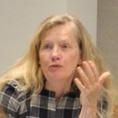
“It is always inspiring to discover what colleagues are working on, as well as subjects still new to me, particularly regarding generative AI systems. It makes me reflect on how I will address these topics in my own teaching.”
Isabelle Richelle, Professor of Tax Law
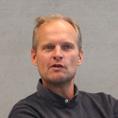
“I appreciate this kind of day because it forces me to reflect over a longer period. Dedicating time exclusively to this topic helps move my thinking forward. It is also the only place where we have practical exchanges with colleagues”
Frédéric Naedenoen, Lecturer in Applied and Digital Human Resource Management
Help desk Infra & network engineering Web & Intranet
THE TRANSVERSAL AXES
THE LIFEBLOOD OF THE STRATEGIC PLAN
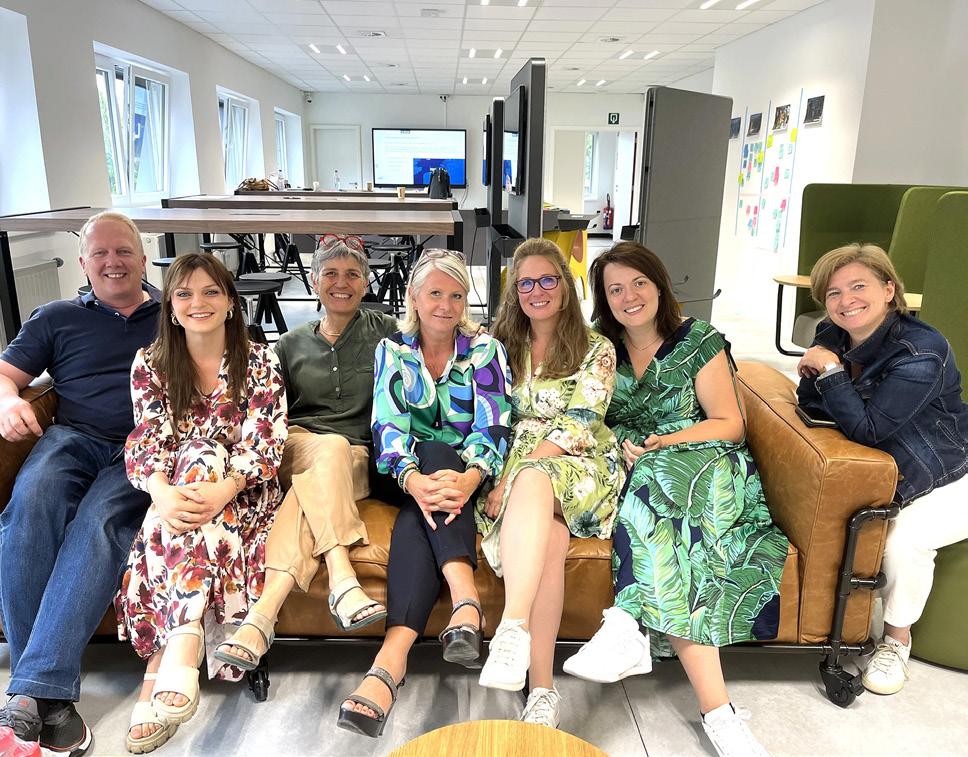
1. “Made in HEC” tools
Beyond the technical and pedagogical support provided by the Decentralized IT Unit and Digital Experience, our community also benefits from tailor-made tools created entirely by the Operational Excellence Program (OEP), which develops the School’s information systems.
A recent example is LILO (LIfe LOng Learning Education), an internal platform designed to simplify and centralize the administrative management of Executive Education programmes. It offers participants a smooth experience, including a dynamic registration form, automated emails, and secure personal access.
For programme managers, LILO is a real revolution: centralized data, duplicate removal, attendance tracking via QR codes, evaluation and certification management, and even integration with the Finance department to streamline invoicing. OEP also developed detailed data analysis reports, providing an overview of enrolments and ensuring optimal performance tracking.
Behind this project lies not only significant technical work but also a genuine change management challenge. For every new tool, OEP helps teams rethink their practices, identify what can be simplified, automated, or improved, and co-build tools aligned with their actual needs.
The results speak for themselves: teams have fully adopted the platform and regularly suggest new features.
“LILO allows us to centralize all training and participant data, automate recurring tasks, and generate reliable analysis reports. By eliminating double entries and reducing errors, LILO improves efficiency, data quality, and overall programme monitoring,” say Sylvie-Anne Piette, Director of HEC Liège Executive Education, and her team.
Next steps: extend LILO to international programmes and launch a participant portal to further increase user autonomy.
Sylvie-Anne Piette, Director HEC Liège Executive Education, and her team.
2. Executive Education: a certificate in AI
As a service platform dedicated to digital transformation, the Digital Lab promotes dialogue and collaboration among digital stakeholders within and beyond HEC Liège, in order to understand key issues and co-develop the skills needed in today’s digital world. In terms of training, it has helped design and coordinate several Executive Education programmes, including a Specialization Certificate in Artificial Intelligence, launched in May 2025, aimed at helping professionals better understand the challenges of AI and its impact on organizations.
Research
At HEC Liège, research strongly focuses on major issues related to digital transformation and its economic, organizational, and societal impact.
1. Sustainable IT for Business: a consortium-led project
The Digital Lab and the S’Lab (see pages 38–40), our two service platforms dedicated to digital and sustainability, jointly led a research project on Sustainable IT last year. This one-year project pursued a dual objective: contributing to scientific output and bringing private-sector stakeholders together around the topic while providing them with concrete tools. It was co-funded by public and private partners as part of the Walloon digital strategy, Digital Wallonia What made this project unique was the involvement of a consortium of nine private co-funders. Four workshops were organized in collaboration with the Belgian Institute for Sustainable IT. These sessions not only informed partners about the progress of the research but also actively engaged them in testing and refining a conceptual tool developed by the research team.
Designed to be dynamic, these workshops combined thematic presentations with interactive sessions on best practices in Sustainable IT.
The project delivered two key outputs:
Q A scientific article synthesizing the existing literature, offering new perspectives on Sustainable IT and approaches to integrating digital technologies into sustainability strategies.
Q A practical guide for companies and organizations wishing to embark on Sustainable IT initiatives, structured around the questions raised by partners during the kick-off workshop.
Feedback was very positive. Most partners decided to co-fund a four-year PhD on the subject, turning a one-year experiment into a long-term collaboration. This win-win initiative benefits all parties: companies gained concrete tools, the Walloon Region strengthened collaboration between research and industry, and the University added a high-impact doctoral project addressing societal challenges.
A SUCCESSFUL INITIAL PROJECT LEADING TO A DOCTORAL RESEARCH PROGRAM
The partners expressed highly positive feedback on the project. Their enthusiasm is reflected in the decision made by a majority of them to build on this momentum by co-funding a four-year doctoral research project. This original collaborative approach has therefore resulted in a win–win situation for all stakeholders: the private partners now have better tools to implement their Sustainable IT strategies; the Walloon Region has succeeded in initiating a positive dynamic and fostering long-term collaboration between the academic and business worlds; and finally, the university has enriched its portfolio of doctoral projects with an initiative designed to further reflection and action in response to today’s societal challenges.
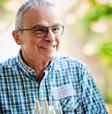

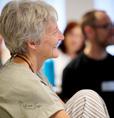
“What I remember most is the richness of the discussions and the friendly atmosphere.”
Manuel Khronis, Business Product Owner Digital Transformation at Ethias
“This experience helped me clarify how to launch the topic within our company.”
Isabelle Houben, Progress Manager at Safran Aero Boosters
“I greatly appreciated the exchange with other organizations, and the mix of theoretical insights, expert contributions, and interactive workshops, which helped us deepen our own challenges.”
Chantal Verbois, CSR Officer at Partenamut
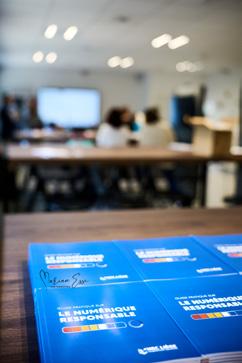

Download the guide
THE TRANSVERSAL AXES
THE LIFEBLOOD OF THE STRATEGIC PLAN
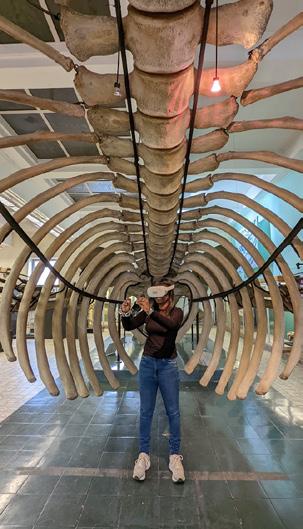
Service & Citizenship
2. Virtual reality and AI for public speaking training
Among recent research highlights, the PhD thesis of Élodie Etienne, supervised by Prof. Michaël Schyns and defended in June 2025, demonstrated how innovative technologies can support the development of essential human skills, particularly public speaking, by providing personalized multimodal feedback.
“Public speaking is an essential competence, yet it remains difficult and anxiety-inducing,” explains Élodie. Her research shows how virtual reality combined with data analysis and AI can help address this challenge. The aim is to create realistic virtual environments (classroom, lecture hall, courtroom) where students and professionals can practice, repeat, and improve while receiving personalized feedback.
“The novelty,” she adds, “is in the multimodal analysis of speaker behavior: this means measuring and observing different aspects of performance – voice (intonation, pauses, rhythm), text (clarity, structure), non-verbal cues (gestures, gaze, posture), and even expressed emotions.”
Developed by the AR/VR SIG Lab at HEC Liège, these environments were tested and validated in eight studies with several partners, including the Faculty of Psychology at ULiège (vocal behavior sciences), the Law Faculties of Liège and Manchester Metropolitan University (legal pleading contexts), and LIS at Aix-Marseille University (AI and technological tools).
“The goal is not to replace human coaching but to enrich it,” stresses Élodie. Using interpretable machine learning algorithms, complex data can be translated into practical recommendations: slow down, vary tone, maintain more eye contact… “This type of feedback makes training more engaging and, above all, more effective.”
This project illustrates the central role of digital technologies in tomorrow’s research and education. Starting in October 2025, Élodie Etienne will continue her research at INRIA Paris, exploring AI bias in human–machine interactions.
The Digital Lab also contributes to our third pillar by creating open spaces for discussion on digital transformation, extending beyond academic boundaries.
It regularly hosts public events and debates. A recent example was the panel discussion “Create, Cheat or Learn: What AI Changes in Education”, which brought together experts and students to reflect on the ethical and pedagogical implications of generative AI.
To make these debates more widely accessible, the Digital Lab launched the podcast Échos Numériques, a curated digest of these discussions that explores different facets of digital transformation. Episodes are available on Spotify and Apple Podcasts.


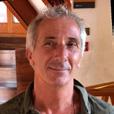
BSIS, Our Guiding Thread: Measuring Impact, Translating Strategy
Digital Impact
• 10,000 users of the digital platforms developed by HEC Liège
• 20 teaching projects integrating digital innovations
• Over 100 participants per year in training programmes related to digital transformation
“Not training students on AI is, in my view, a moral failure of the university. Universities must prepare tomorrow’s citizens to critically reflect on technologies that will shape everyone’s daily lives.”
Louis de Diesbach, Technology Ethicist
“In one course, we were asked to critique a generative AI answer. It led us to much deeper research. But today, the answers are so convincing that it is becoming hard to step back from them.”
Thibaut Lefebvre, Master’s student in ‘Management of Organizational Systems in Transition’ at HEC Liège
“If tools can help implement effective pedagogical principles, I believe they are welcome. We can build intelligent agents that help students reason about their course content by generating questions that make them reflect on what they’ve understood – and what they haven’t yet grasped.”
Bruno De Lièvre, Director of Educational Engineering and Digital Learning, Umons
Nicolas Neysen, Digital Transformation Lead and Roxanne Thonnard, Assistant manager Digital Transformation Office

Entrepreneurship & Innovation Axis
Planting the Seeds of Audacity and Growing the Entrepreneurial Spirit
A Pioneering Dynamic at HEC Liège
Entrepreneurship at HEC Liège is nothing new. For more than twenty years, the Specialised Master in Entrepreneurship – HEC Entrepreneurs – has been training successive generations of students who choose to explore, test, and put their entrepreneurial mindset into action. Last academic year, this flagship programme celebrated its 20th anniversary, a reminder of our School’s pioneering role in this field. Entrepreneurship is deeply rooted in the DNA of HEC Liège and in 2025 it takes on a new spotlight: the year has been dedicated to The Art of Entrepreneurship, showcasing the entrepreneurial spirit that drives the School through a range of dedicated events and initiatives. Building on this momentum, the Innovation & Entrepreneurship Lab was created to stimulate the entrepreneurial mindset among our students while strengthening ties with both the regional and international ecosystems. Its mission is clear: to bring entrepreneurship to life across our three pillars – Education, Research, and Service & Citizenship.
In close collaboration with the S’LAB (sustainability) and the Digital Lab, it serves as a catalyst for the School’s strategic vision –We nurture the future
Education
Education is a central pillar of our mission. The Lab supports and develops two flagship programmes in entrepreneurship: the HEC Entrepreneurs Master and EMMIE, the first and only Erasmus Mundus Master in Impact Entrepreneurship in Europe. These programmes act as springboards for those who want to transform their ideas into projects, and they share core values: the importance of positive impact and of networks. This is why coordinators regularly bring students from the two programmes together, as shown in this year’s academic kick-off.
For more than 20 years, the HEC Entrepreneurs Master has trained over 350 graduates from diverse backgrounds: civil and industrial engineers, communication specialists, lawyers, psychologists, economists, biomedical and pharmaceutical scientists, among others. This diversity of profiles enriches the programme and fuels complementary, innovative entrepreneurial approaches. Its alumni have created or taken over more than 90 companies and generated over 1,000 jobs – clear evidence of the programme’s lasting impact on the economy and entrepreneurial ecosystem.
Beyond these curricula, the Lab also drives numerous pedagogical innovations that impact students from their very first days: the Welcome Sprint, centered on real-life entrepreneurial challenges (see page…); the Pitch Lab, training the art of persuasion; and tools and teaching resources for trainers and mentors in entrepreneurship, such as the InnoLabs project with partners in Ecuador and Cuba.
Our teams also contribute to Executive Education programmes, including those in Casablanca and within the Open Borders MBA, ensuring that entrepreneurial spirit is also anchored in the journeys of managers and executives.
Research
On the scientific side, the Lab focuses on understanding the entrepreneurial mindset by drawing on neuroscience and cognitive sciences. Our research explores, for example, how entrepreneurial experience fosters cognitive and behavioral adaptability, and the mechanisms that stimulate intrapreneurship within organizations.
The Lab is also part of major international collaborations. It acts as the Belgian partner of the global GUESSS survey, in collaboration with UNamur, UGent, and UAntwerp, which measures entrepreneurial intentions and dynamics among students every two years.
Service & Citizenship
Being a Lab also means engaging with and for society. We contribute to awareness-raising activities that spread an entrepreneurial culture far beyond the classroom. The Lab also nurtures the HEC Entrepreneurs alumni community, which remains a vital source of inspiration and support for current generations.
We coordinate the Starters Corners set up in several faculties of the University – spaces dedicated to students who want to grow their entrepreneurial projects, supported by Wallonie Entreprendre. These hubs act as crossroads where ideas, collaborations, and mentoring opportunities converge.
Together with the VentureLab, the student incubator created by HEC more than 10 years ago, we also support the student-entrepreneur status at the University. VentureLab alone has supported the creation of more than 260 companies founded by students or young graduates, generating over 1,400 jobs.
Our direction remains clear: to Be, to Act, to Change.
Frédéric Ooms, Assistant Professor and Bernard Surlemont, Professor of Entrepreneurship
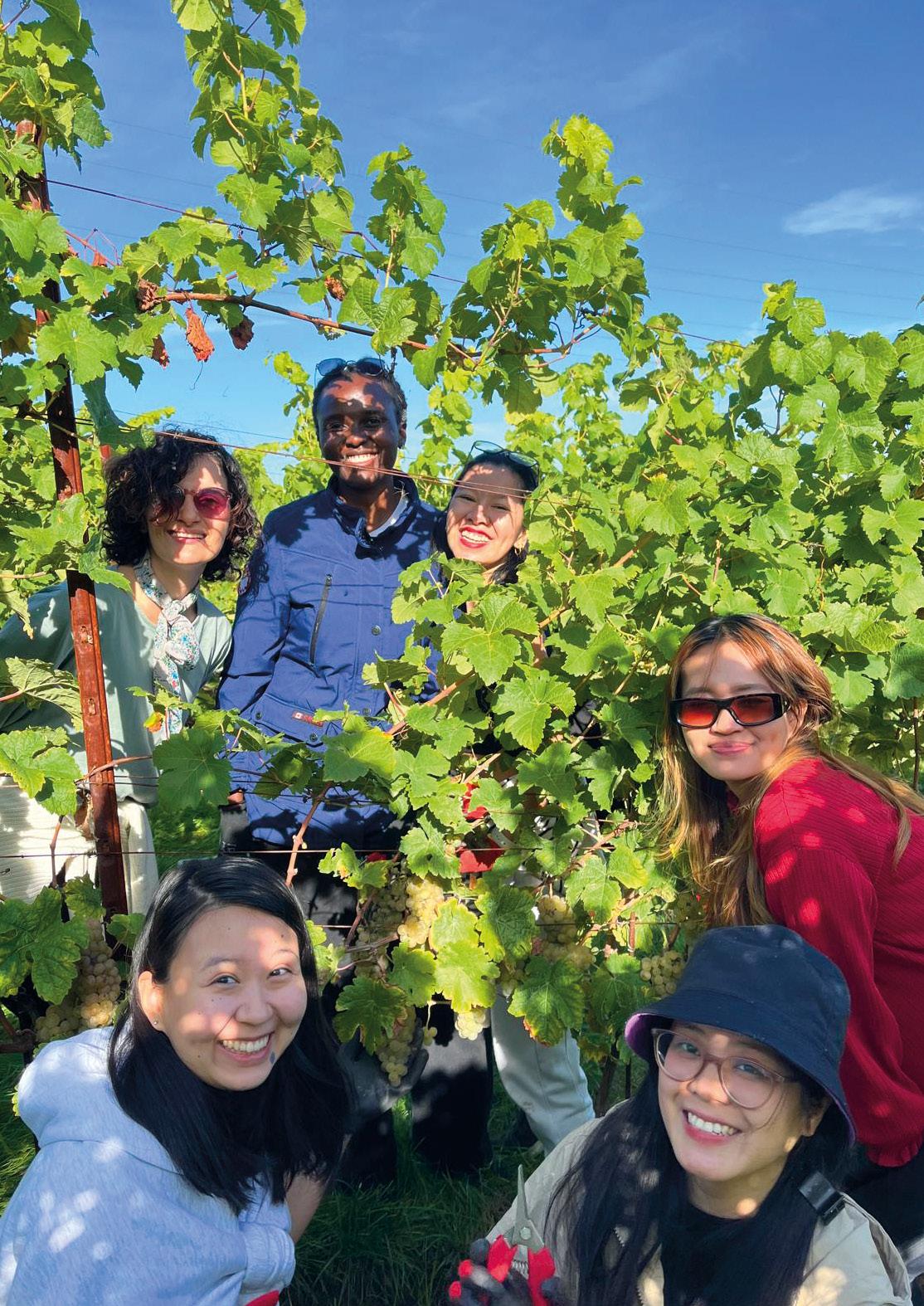
THE TRANSVERSAL AXES
THE LIFEBLOOD OF THE STRATEGIC PLAN
Entrepreneurial Kick-Off: a launch under the sign of transmission and networks
This academic year began with the traditional kick-off weekend, bringing together the 21st cohort of the HEC Entrepreneurs Master and the 3rd cohort of EMMIE. This activity was the occasion for a double handover, marking a new chapter in HEC Liège’s entrepreneurial journey. Professor Bernard Surlemont passed the torch to Professor Frédéric Ooms, who now leads the academic direction of the HEC Entrepreneurs Master. Joëlle Noti (HEC Entrepreneurs 2018) took on the significant challenge of succeeding Caroline Gerkens as programme coordinator. Also contributing to this milestone were Asma Mokhtari (EMMIE cohort 2), who develops Starters Corners within the School, Fabrice Pirnay, and Laure Magnier, EMMIE coordinator. This symbolic moment embodied the transmission of values and leadership.
Experiencing entrepreneurship from day one
Training entrepreneurs is not only about transmitting tools – it is about immersing students in situations where collaboration, creativity, and audacity are essential. This is precisely what the kick-off weekend offered: group activities designed to spark reflection, push boundaries, and foster networking.
Three Highlights:
Q 2 Tonnes Workshop: a collaborative simulation on climate choices, inviting students to assess entrepreneurial decisions through the lens of ecological transition.
Q Deep Time Walk: a symbolic journey through Earth’s history, placing human action in a multi-millennial perspective – a powerful exercise in rethinking entrepreneurial responsibility.
Q Effectual Dinner: a friendly evening inspired by effectuation theory, where students learned to undertake with the means at hand, leveraging networks and transforming constraints into opportunities.
The atmosphere was energizing, collaborative, and inspiring. More than team-building, a strong message permeated the activities: challenge the status quo, dare to explore new possibilities, and think sustainably. These values resonate deeply with HEC Liège’s DNA and with its alumni community.
A symbolic conclusion: harvesting with an alumna
The weekend closed at Bellum Fagetum, the vineyard created by Judith Michel , a graduate of the very first cohort of HEC Entrepreneurs. This was a beautiful way to connect the new generation with its predecessors. Students discovered the inspiring journey of this entrepreneur, who successfully reinvented her business model after the Covid crisis. Judith has designed a company with an original governance, financing, and operating model. On this sunny September day, participants rolled up their sleeves to take part in the grape harvest – a convivial, meaningful, and authentic moment, close to the land, illustrating the strength of the HEC network: learning from alumni, sharing real-life experiences, and cultivating the entrepreneurial spirit together.
A Nod to Alumni
For alumni readers, this account may feel like a return to the roots. But it also highlights the continuity of a vision: at HEC Liège, entrepreneurship is lived as much as it is taught. These new cohorts walk in your footsteps, with the ambition to reinvent, as you did, the boundaries of what is possible.
And because this journey thrives on the experience of predecessors, alumni are warmly invited to actively contribute: as Entrepreneurs in Residence, or by supporting initiatives led by the Entrepreneurs Alumni team – Mathieu Bouhy, Anthony Verdun, and Nicolas De Angelis – who animate activities and strengthen ties between generations.
Prof. Bernard Surlemont and Prof. Frédéric Ooms
BSIS, Our Common Thread : Measuring Impact, Translating Strategy Entrepreneurial Impact
• Nearly 200 projects supported, 20% of which originate from HEC Liège
• Over 1,500 jobs created by companies emerging from the School’s entrepreneurship programmes
• An average of more than 15 new companies created each year
THE TRANSVERSAL AXES
THE LIFEBLOOD OF THE STRATEGIC PLAN

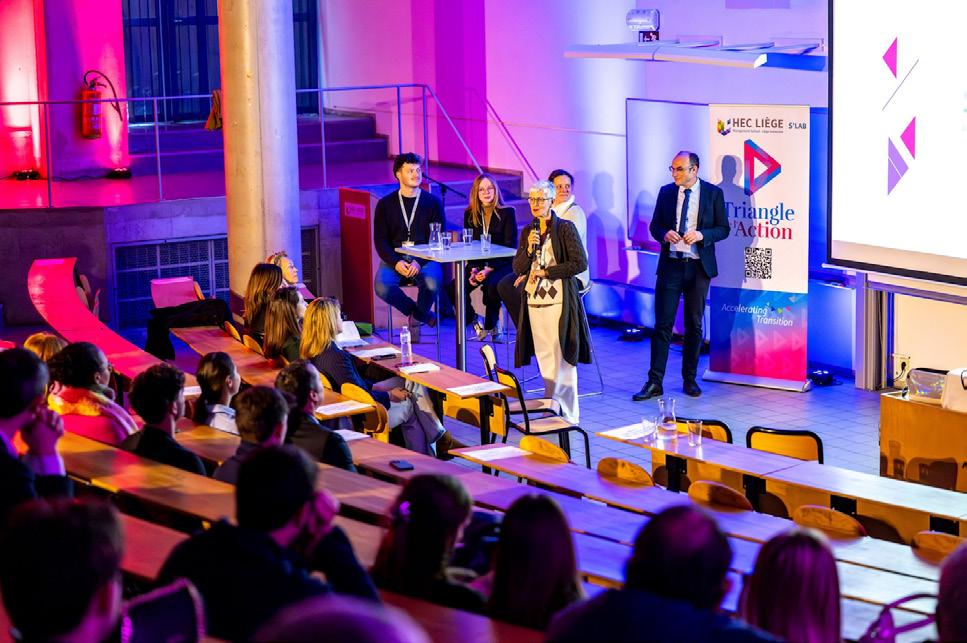
Sustainability & Transitions Axis
The S’LAB – HEC Liège’s Cross-Cutting Platform on Social and Environmental Transition
Created in 2020, the S’LAB is now entering its fifth year as a service platform within the School. Its purpose is to bring together initiatives and expertise related to sustainability at HEC Liège in order to foster stronger dialogue with the field and with the business world.
Fully aware of the role it must play in society, our School aims to better understand, teach, and propose practices that allow for sustainable economic activity – ensuring a social foundation for all without overshooting planetary boundaries. We must train tomorrow’s managers and entrepreneurs to become true drivers of this societal transformation.
The S’LAB therefore unites the strengths of the HEC community and mobilizes its expertise to accelerate the sustainability transition in society. It invites every member of our community – students, professors, researchers, administrative and technical staff – to act as an agent of change.
In terms of governance, the S’LAB is supported by a Steering Committee composed of two members of the Executive Committee, as well as academic and scientific representatives. This Committee develops action proposals to implement the Lab’s strategy and evaluates the necessary human and financial resources. In addition, a Strategic Council brings together the Lab’s private partners along with members of the Steering Committee. Its role is to provide advisory input on the choices and directions taken by the Lab.
Proud of the path already taken, and fully aware of the one still to be built, we are now closing our first action plan. Completed, ongoing, and upcoming projects continue to fuel our momentum. With our sights firmly set on the future, we are now developing a new plan aligned with HEC Liège’s strategy to support it even more effectively.
Our direction remains clear:
We nurture the future!
Education
Our contribution operates on two levels.
At a meta level , as a transversal platform within the School, we participate in strategic reflections on how to strengthen sustainability within Education. The recent curriculum reform has, for example, established a common track for all Bachelor and Master students, with at least one course each year fully dedicated to integrating sustainability into the business world. Every student therefore graduates with a solid foundation of knowledge and skills in this area and can deepen their exposure through electives or dedicated Master programmes. At a micro level, the S’LAB serves as a toolbox for professors who wish to integrate sustainability issues into their courses – whether in marketing, accounting, supply chain, entrepreneurship, or even language classes. We provide support and resources to faculty, suggest external speakers, propose cases, and are often invited to sit on juries: from the Nudge Challenge and Recycling & Upcycling Challenge in marketing, to the HEC Entrepreneurs “Impact Mission,” to the evaluation of projects in the course Business Modeling, Control and Planning.
The S’LAB also contributed to the development of the new course “Business, Sustainability and Transition” for first-year Bachelor students – the HEC adaptation of ULiège’s cross-faculty MOOC “Sustainability and Transition.” Taught by Frédéric Ooms and Bruno Gemenne, this course provides not only conceptual keys but also practical avenues for action.
In 2024, the first sustainability skills workshop was also launched, giving students the opportunity to test the SDG Impulse tool with four partner companies. We plan to further develop this skills portfolio, engaging students in our campaigns and initiatives. How could we not mention the S’LAB’s involvement in organizing the Welcome Sprint, the three-day challenge for 600 first-year Bachelor students? Ten sustainability themes related to the city of Liège, 100 student teams, and over 60 companies and experts mobilized. At the end of three days, each team pitched its entrepreneurial project to a jury of professionals. After two successful editions, the Welcome Sprint will continue – constantly reinventing itself.
Research
On the Research pillar, the S’LAB works to build bridges across our research centers on sustainability and to foster dialogue with businesses and public stakeholders. We see ourselves as a bridge between academic research and field needs. We work with partner companies that support the Lab as a whole (Idema Sport, CRM Group, Silox) as well as those supporting specific research projects (Partenamut, Ethias, Ecogreen Soft, Externaliz IT). We warmly thank them for their support! Through the Strategic Council, these partnerships generate fruitful exchanges and new projects. We also collaborate with a wide range of organizations active in sustainability, such as Hope n’Joy, the Green Office, and Smart 2 Circle.
In 2024, the S’LAB launched its first joint research project with the Digital Lab, focused on responsible digital practices. Co-funded by the Walloon Region and nine private partners, the project delivered four workshops and a practical guide to equip companies on this topic. (See the Digital Lab pages for more information.) Looking ahead, we also want to contribute to HEC Liège’s goal of making our expertise accessible to wider audiences through outreach and dissemination projects.
Service & Citizenship
On this third pillar, the S’LAB has launched – and continues to lead – numerous projects to raise awareness among students and colleagues, both as members of a community and as responsible citizens. We encourage them to take action for a more sustainable campus and world, embracing the dimensions to Be, to Act, to Change In 2024, we launched the Danc’IN Diversity campaign. Proud of the richness of our campus diversity, we sought to ensure the community was fully aware of it, identify areas for improvement, and propose concrete actions for better living together. Two themes in particular emerged (through surveys, vox pops, student projects in the English competition, etc.): greater use of English as a shared language, and reducing discrimination linked to beverage consumption (alcoholic or not) during social events.
Our biggest challenge today is to increase student involvement in our initiatives in order to amplify our impact. A mixed working group (students and staff) now meets four times a year, and everyone is welcome to join.
In partnership with the ULiège Green Office, we also created a Sustainability Friends network. This group of about 90 already-engaged members from across faculties helps raise awareness and mobilize others. They meet regularly for collective reflection, training, and celebration.

THE TRANSVERSAL AXES
THE LIFEBLOOD OF THE STRATEGIC PLAN
A subgroup of Diversity Friends, specific to HEC Liège, was also created within the Danc’IN Diversity campaign. Their mission is to foster an inclusive environment for our School by:
Q Serving as contact points in cases of discrimination or other difficulties
Q Relaying the S’LAB Diversity & Inclusion campaign
Q Co-designing D&I actions
Q Sharing knowledge and ideas
Q Evaluating and celebrating progress
Q Actively participating and encouraging participation
But what would be the point of these actions without a real understanding of today’s and tomorrow’s challenges?
This question inspired the S’LAB to develop the S’LAB Climate Actions Training: a series of training modules (to expand over time) offered to the community and our partners. By deepening our understanding of the environmental and social crises we face – sometimes without even realizing their magnitude – we strengthen resilience and prepare ourselves to meet these challenges.



Bruno Gemenne, Sustainability Manager and Marianne Snakers, Project Leader - S'LAB
This dynamic has been launched and is ready to grow. Everyone is welcome to join! We are convinced that our strength lies in our collective power to act.
More details on the life of the S’LAB: https://slab.hec.uliege.be
Want to get involved? Contact us at marianne.snakers@uliege.be
BSIS, Our Common Thread : Measuring Impact, Translating Strategy
Sustainability & Transitions Impact
• 37 courses and 50% of Master’s theses related to transition issues
• Transition support programmes for companies: 4 continuing education tracks
• A low-carbon-impact building

SHINING ACROSS THE WORLD:
IT’S IN OUR DNA
Located at the heart of Europe, in a region historically shaped by trade, migration, and export-oriented industries, HEC Liège naturally thrives in an international dynamic. Since its creation, the School has fostered this outwardlooking perspective, reflected both in its programmes and in its academic and corporate partnerships. Today, our double degrees, student exchanges across four continents, research projects with leading universities, and strategic focus on Asia and Africa all testify to this international DNA.
Every year, many students and professionals from diverse backgrounds choose HEC Liège to strengthen their skills, particularly through our Executive Education network. Last September, for example, thirty lawyers from Burkina Faso took part in an intensive week-long ‘LegalTech’ training programme, combining seminars with visits to economic players in Liège and Luxembourg. Just a week later, the cohorts of our MBA programmes in Kinshasa and Casablanca travelled to Belgium: 48 students came to discover the country’s political and economic environment. Their programme included visits to flagship companies such as John Cockerill, FN Browning, and EVS, a meeting with the Luxembourg Chamber of Commerce, an introduction to the European institutions in Brussels – and, of course, Spa-Francorchamps and Belgium’s rich cultural heritage. These experiences perfectly illustrate the vitality and attractiveness of our School.
This international mindset is a key driver of our development. Not only does it attract students, researchers, and partners from all over the world, it also strengthens our global visibility in the highly competitive landscape of business schools. It is no coincidence that HEC Liège holds double international accreditation, with the prestigious EQUIS and AACSB quality labels.
On campus, this cultural diversity is lived every day: more than 20 nationalities represented among staff, a vibrant linguistic mix, and students from 80 different countries. Our Alumni network, with 20,000 graduates active in more than 100 countries, forms an exceptional community of ambassadors, amplifying the School’s reach across the globe. HEC Liège is, by its very nature, an international School: firmly rooted in its territory, shining its region outward while attracting the world to Liège.
We nurture the future!
BSIS, Our Common Thread : Measuring Impact, Translating Strategy
Reputation & International Impact
• 35 to 38% international students, representing 80 nationalities
• 150 partner universities worldwide
• Strong presence in Asia (80,450 hours of training delivered)
• Alumni present in more than 100 countries
• Programmes offered in Morocco and the Democratic Republic of Congo
• Dual EQUIS and AACSB accreditation
• Proven international attractiveness
Nathalie Hosay, Head of External Relations & Communication


Launch of the 14th Cohort of the Open Borders MBA
As every academic year for the past 14 years, HEC Liège is delighted to welcome a new cohort of the Open Borders MBA. Developed in collaboration with Hasselt University and FH Aachen and supported by the German-Speaking Community, this programme brings together participants from across the Euregio. Over two years, they will have the opportunity to strengthen their managerial skills, acquire new knowledge, and share experiences in a stimulating international environment.
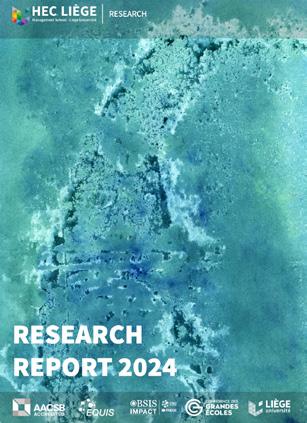
Spotlight on Research 2024
For the second consecutive year, the Annual Research Report is presented in a digital and interactive format. This provides an opportunity to explore online in a smooth and visual way, the work carried out by our researchers throughout the year.
Discover it here:
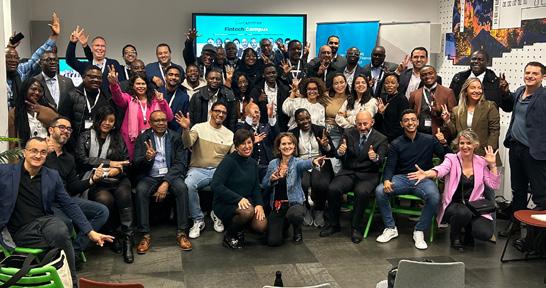
MBA Casablanca x MBA Kinshasa
In September, HEC Liège welcomed the cohorts of the MBA Kinshasa and MBA Casablanca for a study trip to Belgium. Twenty-one students from Kinshasa and twenty-seven from Casablanca discovered the country’s economic and cultural richness.
The programme included a seminar on Belgium’s political and economic environment, visits to emblematic companies such as John Cockerill, FN Browning Group, and EVS, as well as a trip to the Spa-Francorchamps circuit. The study tour also featured a stop in Luxembourg, with a presentation by the Chamber of Commerce, and a day in Brussels to discover the European institutions.
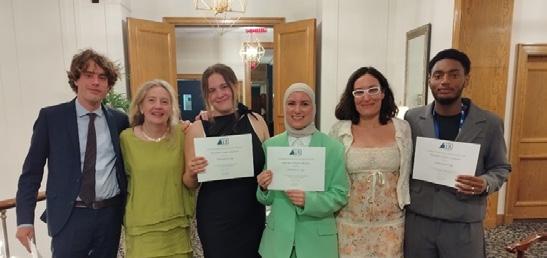
Congratulations to our students of the Advanced Master in Tax Law!
The University of Liège team proudly secured 3rd place at the TEI International Tax Student Case Competition 2025, held in Montreal from August 14 to 16, which brought together 16 teams from leading universities across Asia, Europe, and the Americas.
After three months of intensive preparation and three hours of strategic analysis as in-house tax advisors, our students convinced an international jury with the quality of their reasoning and their innovative solutions.
A huge congratulations to Cyrille Gilliard, Zeinab Cherry, Lena Hayen, and Ibrahim Diallo, as well as the professors and mentors who guided them: Prof. Isabelle Richelle Graulich, Prof. Bart Peeters, and Prof. Caroline Docclo. Many thanks also to Prof. Marie Lambert for her valuable advice.
Our team also benefited from the guidance of two mentors who shared their inhouse tax expertise: Ana Mata Zapico and Juan Carlos Rubio.
This achievement once again illustrates the excellence, commitment, and ambition that characterize HEC Liège-ULiège students.
More information on the Advanced Master in Tax Law: https://www.hec.uliege.be/masters-specialisation
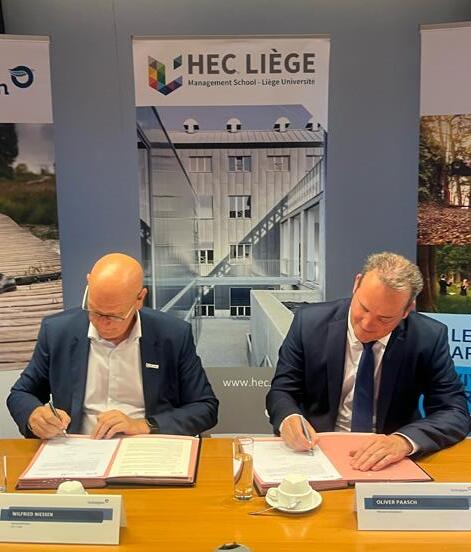
New Strategic Partnership with the German-Speaking Community
At the end of August, HEC Liège and the German-Speaking Community signed a renewed partnership agreement for the period 2025–2028. This alliance aims to strengthen ties between academia and the economic fabric of the German-speaking region while offering students unique professional opportunities.
Key initiatives include the annual Rallye Ostbelgien, allowing students to meet directly with companies and economic stakeholders and to explore career opportunities in the region. At the same time, HEC Liège Executive School is offering specific advantages to companies and organizations that are part of the Ostbelgien brand, thereby consolidating synergies between training and economic development.
In collaboration with FH Aachen University of Applied Sciences and Hasselt University, HEC Liège also offers a unique programme for executives: the Open Borders MBA, delivered at the Kloster Heidberg in Eupen.
For Oliver Paasch, Minister-President of the German-Speaking Community of Belgium, “this partnership illustrates our shared determination to bring academic talent and economic actors closer together in order to boost employment and innovation in our region.”
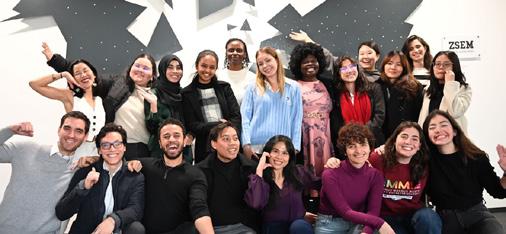
New PhDs
Congratulations to our two new PhDs in Economics and Management from HEC Liège:


Benoit RUYSSCHAERT (joint PhD with Hasselt University): “Strategic Planning in Local Governments: The Case of the Circular Economy in Belgium” (supervisors: Prof. Nathalie Crutzen, HEC Liège - ULiège, and Tom Kuppens, Hasselt University).
Porchourng CHUOR: “Transforming Unstructured Text into Structured Representations with Machine Learning, Deep Learning & LLMs – Management Applications in Regulatory Reporting and Requirement Engineering” (supervisor: Prof. Ashwin Ittoo).

Impact by HEC Liège: A Source of Expertise in Economics and Management
After increasing the visibility of our research through the Pulse podcast, HEC Liège is launching Impact by HEC, a new showcase for the expertise developed within the School: https://www.hec.uliege.be/impact-by-hec Our ambition is twofold: to share our knowledge and experience to inform public and private decision-makers, and to strengthen ties with partners, experts, and supporters in order to create concrete collaborations within our ecosystem.
Available in both French and English, Impact by HEC features accessible articles based on our research and programme expertise, replays of our podcasts, and summaries of key events accompanied by expert analysis. At the end of each article, a contact sheet allows readers to reach out directly to the expert involved.
Impact by HEC Liège is also promoted through a bimonthly newsletter on LinkedIn.
EMMIE Welcomes its New Students
Now in its third year, the prestigious EMMIE – Erasmus Mundus Master in Impact Entrepreneurship –welcomes 18 students from around the world who are working on entrepreneurial projects with a positive impact. After spending 6 months at Zagreb School of Economics and Management (ZSEM), followed by 6 months at ISM University of Management and Economics in Vilnius, the students will complete their final 6 months at HEC Liège.
EVENTS & NEWS
1975-2025: Reunion!
Reunion day for the Class of 1975, organized by Claire Goffin, Jean Beuken, Paul Van Grootel & Pierre Lemaire. “A unique moment to celebrate a lifelong friendship and to express our gratitude for the ‘HEC passport,’ a visa for our professional lives – so diverse, rich, and fulfilling.”

Business Breakfast
Wednesday, 28 May 2025 – Van der Valk Hotel Liège Sélys
Professor Michaël Schyns shared his expertise on an innovative theme combining technology and territory: “When Virtual Reality
Study for Liège Airport.”. Participants then had the opportunity to discover the entrepreneurial projects of young
and
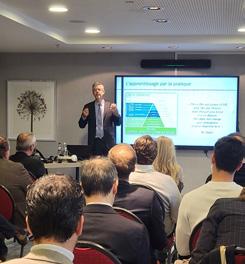
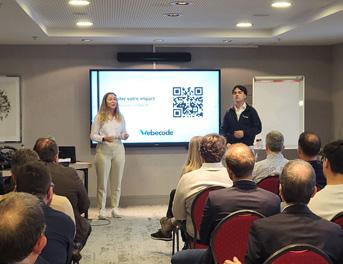
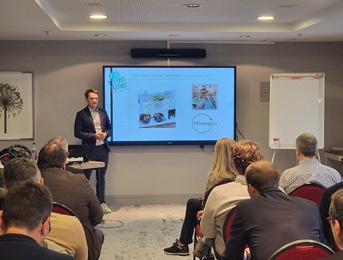
10th Anniversary of the Smart City Institute: 10 Years of Research, Projects, and Regional Impact
5 June 2025, HEC Liège
Dans le cadre de l’année L’Art d’Entreprendre
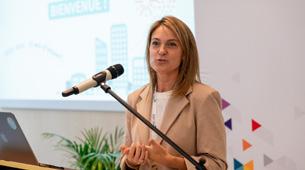
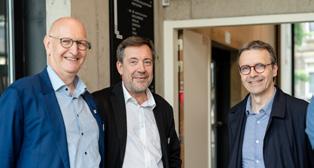
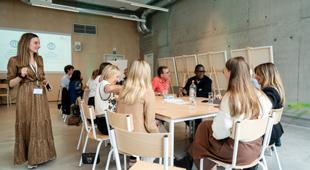
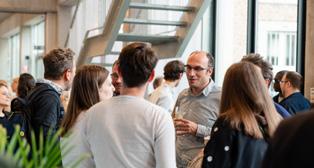

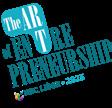
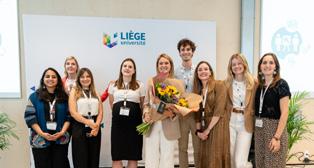
Meets the Real World: A Digital Twin
alumni – Lucie Bernaerts, Co-founder of Webecode,
Simon Gillet, Founder of Minéralio.
Professor Nathalie Crutzen, Director of the Smart City Institute Creative workshop
Wilfried Niessen, General Director & Dean; Frédéric Schoenaers, Vice-Rector for Education and Student Life, ULiège; Jean-Christophe Peterkenne, General Director, GRE-Liège
Idea exchanges and a friendly networking drink
The full Smart City Institute team
Smart City Institute –Michael Radi

6th Annual Edition of the Digital Lab Event
18 June 2025 – La Grand Poste
Two expert panels and a keynote by Louis de Diesbach, Ethicist: “Using AI to Build a Better World: Utopia or Societal Project?”

Geoffroy Jennes, Digitalization 4.0 Engineer, Safran Blades; Sylvie-Anne Piette, Director, HEC Liège Executive Education; Louis de Diesbach, Technology Ethicist, AI Ethics & Governance, Euroclear
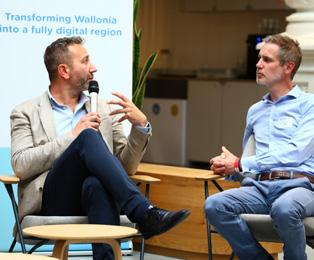
Neysen, Digital Transformation Lead, HEC Liège, and Julien Stocq, Partner, KPMG
Alumni Afterwork “Summer Opening”
Thursday, 19 June 2025 – Business Nursery – B3
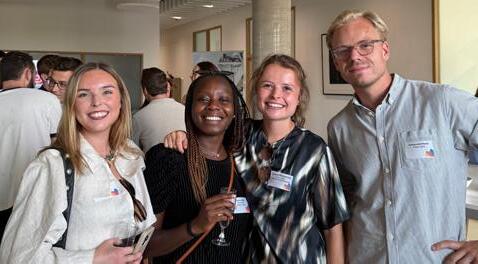
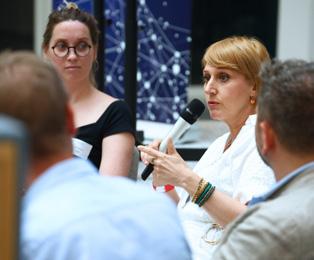
Lucie Dewert, Head of Sustainability, Ethias, and Delphine Gilman, Head of Institutional Relations & Strategy, CHU Liège
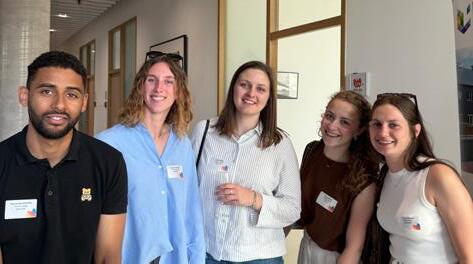

NOIR Artist at HEC Liège
Monday, 15 September 2025 – HEC Liège
Inauguration of the artwork “Libertas Gentis”, HEC Liège edition, by NOIR Artist.
This canvas is a personalized version of the monumental mural “Libertas Gentis”, created by NOIR Artist in 2025 on the façade of Place d’Italie in Liège.
Unveiled at the HEC Liège 2025 Gala, this interpretation pays tribute to the diversity, creativity, and entrepreneurial spirit embodied by the School’s students, graduates, and partners.
It symbolizes freedom – to think, to dream, to act.
From left to right: Aurore Tilkin, Corporate Relations & Alumni Network Manager; Wilfried Niessen, General Director & Dean; Fabrice Drèze, Alderman for Commercial and Tourism Attractiveness, City of Liège; Lucien & Martin Gilson, NOIR Artist; Gilles Foret, Alderman for Ecological Transition, Mobility, Sanitation, and Digital Affairs, City of Liège.
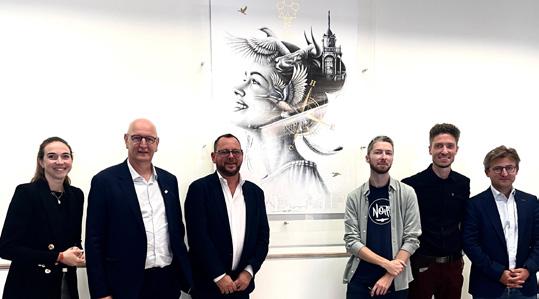
Michel Houet
Nicolas
HEC Liège Golf Trophy 11th edition
On Friday, 19 September 2025, the Royal Golf Club du Sart Tilman hosted our traditional HEC Liège Golf Trophy. Over the years, this event has raised more than €140,000, with all proceeds donated to the HEC Liège Fund to support projects within the University community. A day marked by conviviality, sportsmanship, and networking. Thank you to everyone who contributed to the success of this year’s edition through their presence or support!
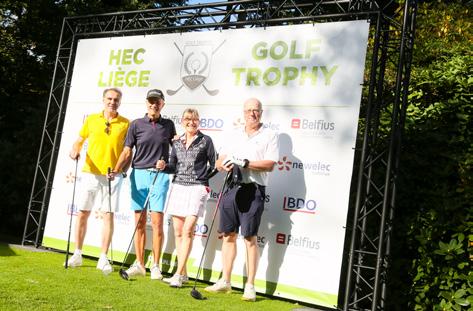
Ap-
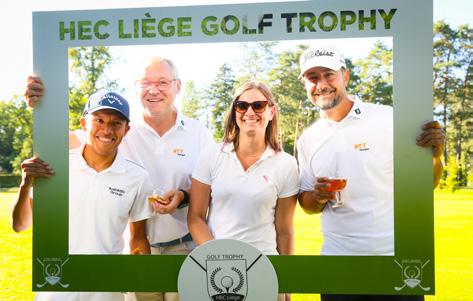
Juan Rizzo, Director, Balteau Group; Vincent Botterman, Managing Director, HB srl; Laurie-Anne Matot, Global Operations Director, Defense & Security Division, FN Browning Group; Gregory Scattone, Company Director

committee

Marie
Tilk-
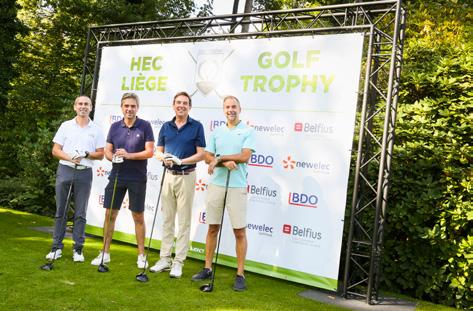
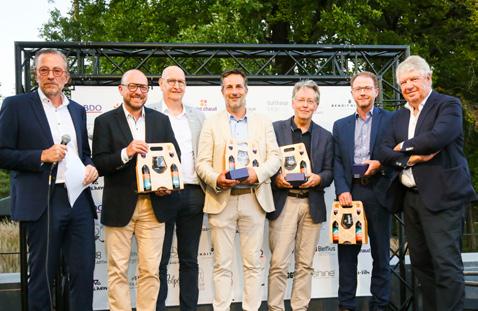
Laurent Weerts, Partner, W Conseil; Yves Lacomble, Head of M&A and Business Development, Renewable Gases Europe, ENGIE; Wilfried Niessen, General Director & Dean, HEC Liège; Cédric Maertens, Managing Director, MDB; Joël Henneman, SME Relations Officer, CBC Banque & Assurance; Stéphane Semmeling, CEO, MEDI-LINE; André Kilesse, Company Director

Michel Bogaerts, Senior Finance Manager, SONY; Dominique Pequet, Managing Director, Anthé; Claire Gruslin, Professor of Marketing & Chair of the Management Department, HEC Liège; Pierre Fraiture, Owner, Cabinet Fraiture
Bertrand
Bouckaert
Pascal Laffineur, Board Director, YUMA; Laurent Leclercq, Head of SAP
plications, Vivaqua; Marianne Raick, Belgium Controlling Manager, Fluxys; Jean-Michel Leclercq, Project Manager, RESA
HEC Liège organizing
– Laurent Weerts,
Antignani, Aurore
in, Pauline Klippert, Louise Mercier, Sandra Delforge, André Kilesse
Gilles Closon, Senior Partner, Matray, Matray & Hallet; Cédric Antonelli, Partner, BDO; Yvan Absil, CFO, Noshaq; Geoffrey Moreau, Group Head of FP&A, FN Browning Group
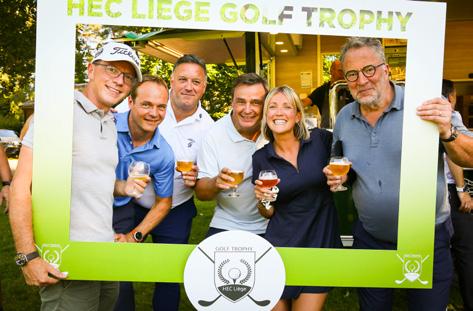

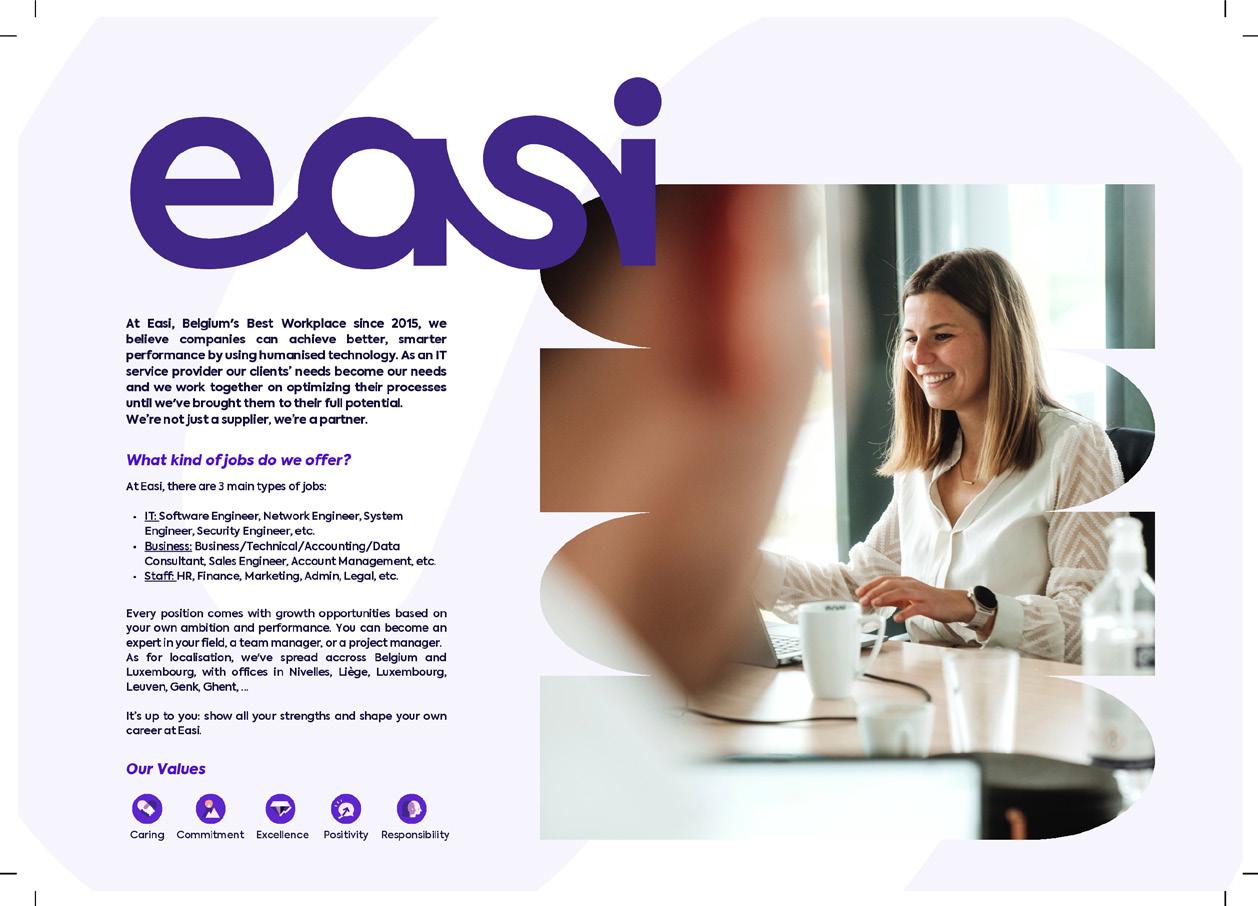

Laurent Culot, Operations Director, Mercedes-Benz Car Avenue; Quentin Grutman; Claude Dengis, Innovation & Industrial Redeployment Advisor; Vincent Trevisan, Chief Family Officer & Director, Groupe Ebenis; Fanny Dewitte, Account Manager, Cible Communication; Roland Colette, Managing Director, Lens Car
Sandra Delforge, Director of Corporate Relations, Career Development & Alumni Network, HEC Liège; André Kilesse, Company Director; Didier Depreay, CEO, Groupe Point Chaud; Jean-Marie Breban, General Director, SOCOFE; Fanny Dewitte, Account Manager, Cible Communication
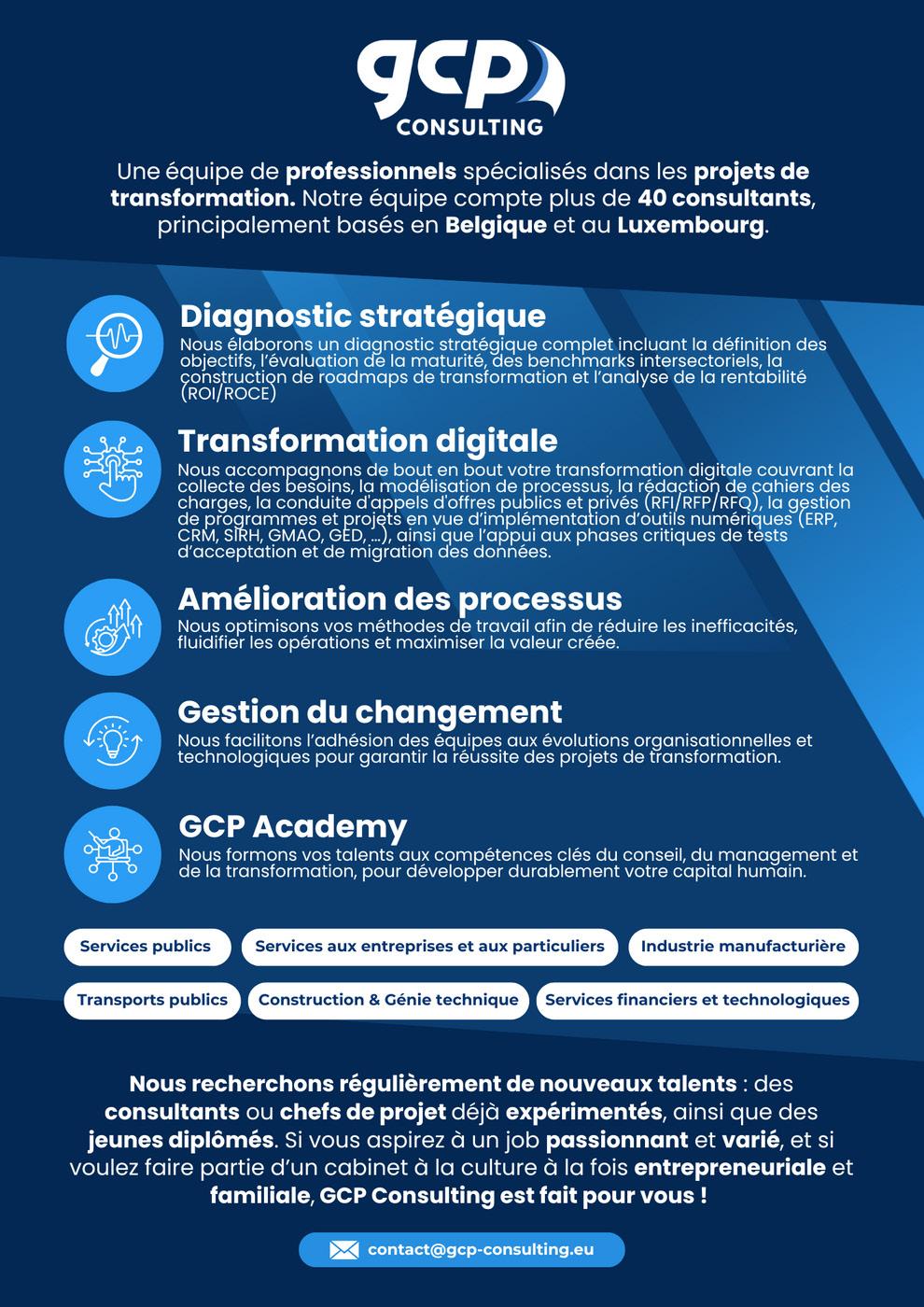
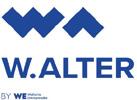

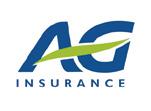


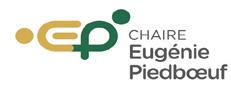












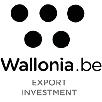











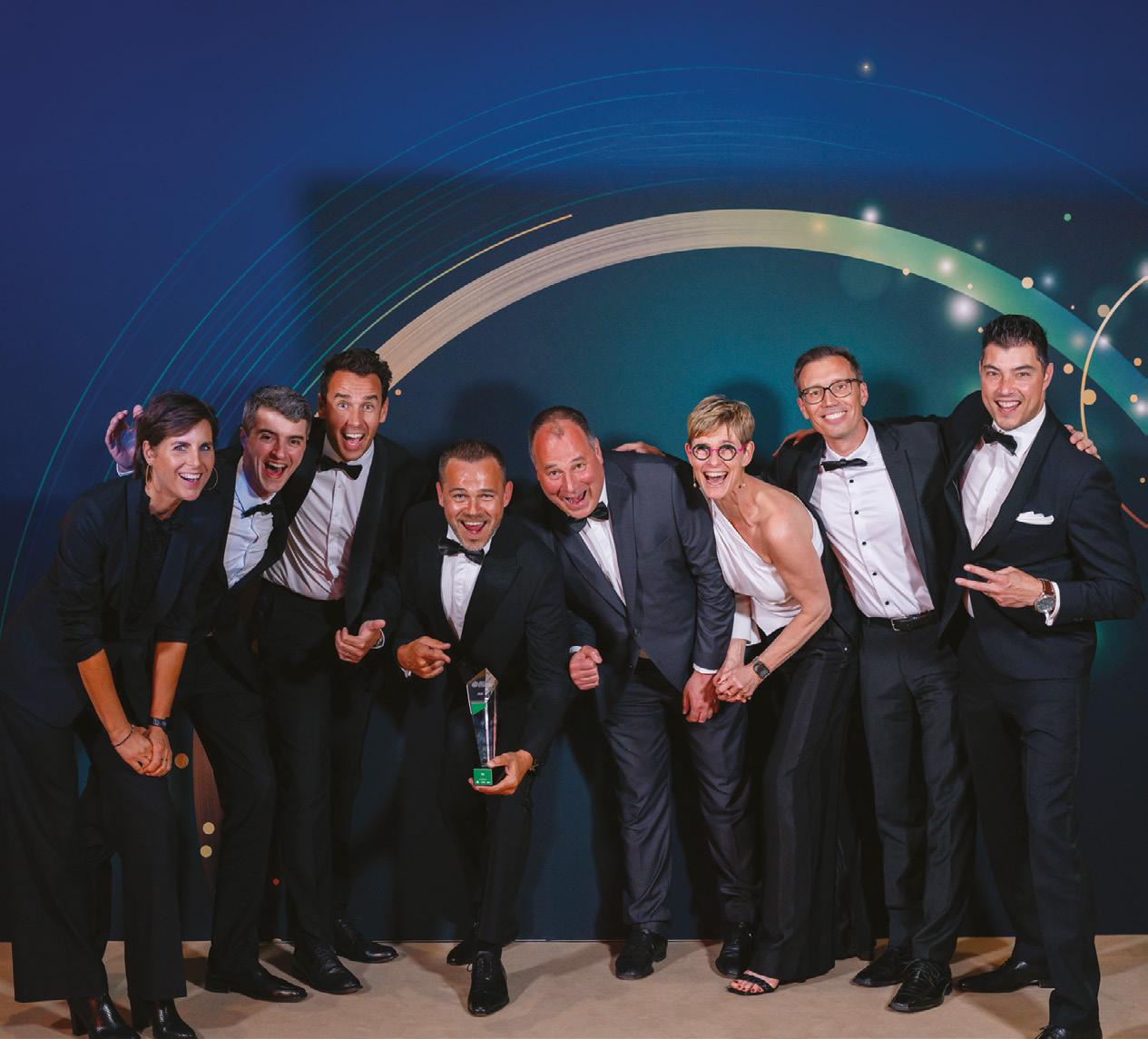
www.bestmanaged.be

